Archives | Page Header
Archives
Search Bar
Category Facet
Tag Facet
Past Issues
PAST ISSUES 2016-2020
Search Results
ARTICLES
-

Kicker Makes Pro Bowl, Leads NFL in Scoring, Makes Playoffs
Marist graduate Jason Myers completed a magnificent 2022 season for the Seattle Seahawks, one which was complete with late-game heroics, postseason play, outstanding statistics, and terrific accolades.Myers is in his eighth season in the NFL as a placekicker and his fourth with the Seahawks. On the last day of the NFL regular season on Sunday, Jan. 8, Myers’ 32-yard field goal in overtime lifted the Seahawks to a 19–16 victory over the Los Angeles Rams. This result, coupled with the Detroit Lions’ victory over the Green Bay Packers, secured a playoff berth for the Seahawks. Although Seattle fell to San Francisco in the wildcard round, Myers made his presence felt with a 56-yard field goal on the final play of the first half.Myers was rewarded with his second career trip to the Pro Bowl and was named First Team All-Pro by the NFL Players’ Association. In the 2022 regular season, Myers led the NFL in scoring with 143 points. He converted 34 of his 37 field goal attempts and 42 of his 43 extra point tries. He also had 54 touchbacks on kickoffs.Myers is a 2013 Marist graduate who was a four-year member of the football program from the 2009 through 2012 seasons. He set the program record for longest field goal in 2011, which came from 49 yards out. That mark was equaled by Luke Paladino in 2019.Myers started his NFL career in Jacksonville. He kicked for the Jaguars from 2015 to 2017 before enjoying a Pro Bowl season with the New York Jets in 2018. He then signed a multiyear contract with Seattle in March of 2019.
10 Jan 2023
Edition: Spring 2023 -
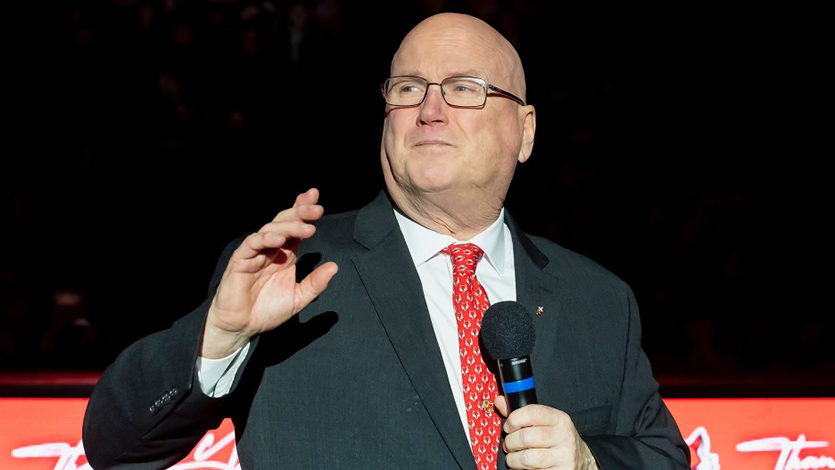
Women’s Basketball Coach Brian Giorgis celebrated after his final home game for making a huge impact both on and off the court.
Women’s Basketball Coach Brian Giorgis celebrated after his final home game for making a huge impact both on and off the court.
02 Mar 2023
Edition: Spring 2023 -
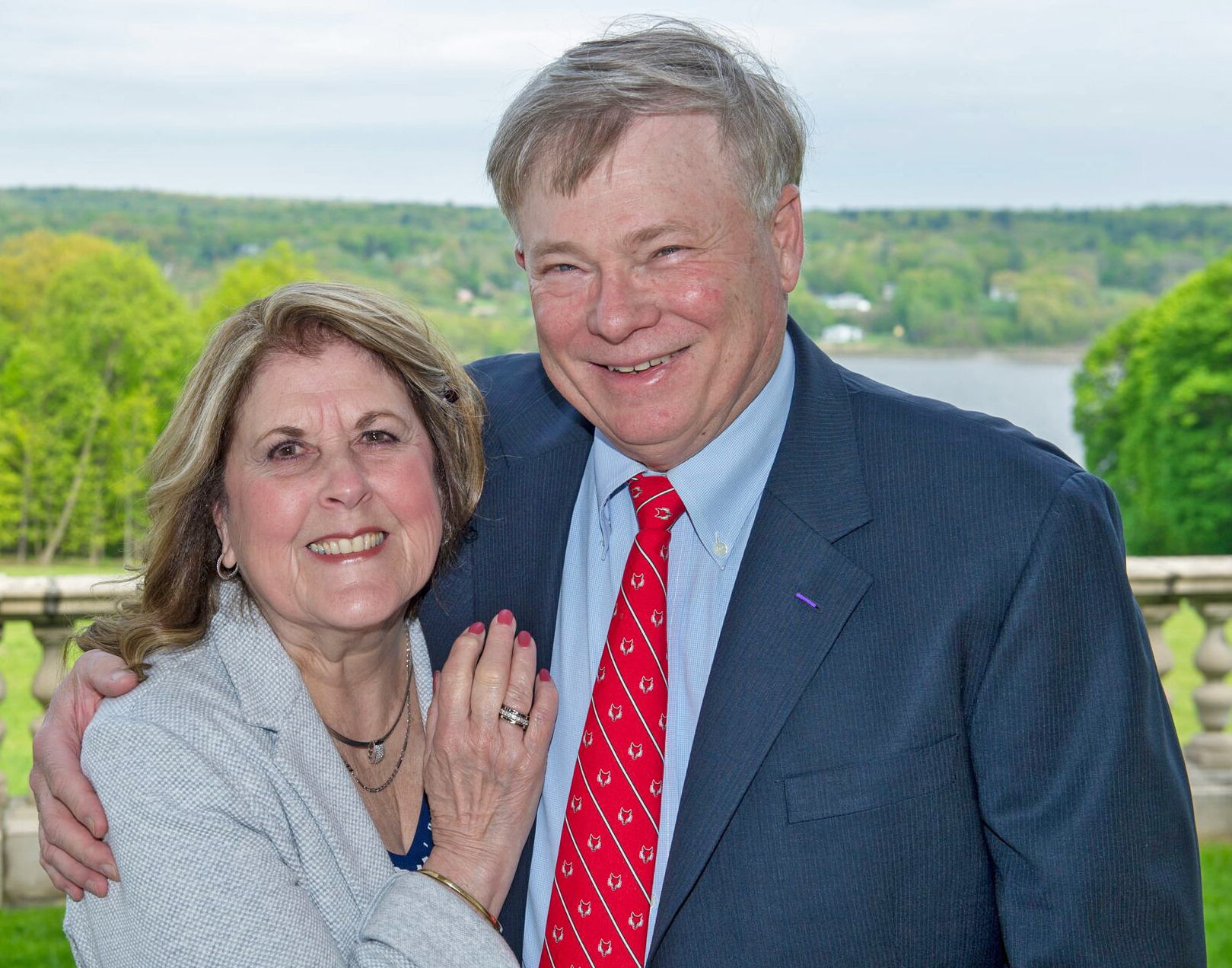
Looking back on two decades of serving students, heritage tourists, scholars, educators, environmental organizations, the business community, and the general public who seek to know more about a region that has been called "the Landscape that defined America."
The Hudson River Valley Institute, a Center of Excellence at Marist dedicated to studying the history and culture of the Hudson River Valley, celebrated its 20th anniversary throughout 2022 with a variety of programs and initiatives involving the Marist community and beyond.To mark the occasion, the staff at the institute wrote an article that appears in the spring 2022 issue of HRVI’s peer-reviewed journal of regional studies, The Hudson River Valley Review. The article highlights many of the organizations (including the National Endowment for the Humanities and the Hudson River Valley National Heritage Area), people, and programs of prominence during the first 20 years and features the evolution of HRVI’s website www.hudsonrivervalley.org, a digital resource that houses materials for researchers, educators, heritage tourists, and the general public. Further, the article recognizes the essential role of the nearly 200 Marist students who have completed internships since 2002.In celebration of the ever-growing group of Marist alumni who have completed an internship, HRVI has been featuring former students in a yearlong social media initiative on Instagram and Facebook. These updates have been seen by more than 20,000 people and show the variety of career paths that can come from the institute’s interdisciplinary internship experiences. In the interview-style spotlights, alumni reflect on the importance of their time at HRVI to their education and work, with careers such as teaching, library sciences, public history, and law all featuring prominently among the individuals recognized. Many intern alumni cite their experience as being a transformative time in their development from undergraduate students to job candidates and professionals, and their work with the HRVI staff as their first experience putting classroom education to use in a professional setting.In addition to a year of celebration, 2022 has also been a year of transition for HRVI. In conjunction with the retirement of Col. (Ret.) James M. Johnson, the institute’s founding executive director and Dr. Frank T. Bumpus Chair in Hudson River Valley History, HRVI launched an ongoing fundraiser to establish the endowed Dr. James M. and Lois S. Johnson Student Research Fund. The fund is designed to enable interns to undertake more impactful experiences and develop more in-depth projects as well as to allow students from a variety of economic backgrounds equal access to the enrichment potential that comes from a fully realized internship with HRVI.“From our beginning, interns have been the lifeblood of HRVI,” said Johnson. “Their work becomes part of HRVI’s publicly available content and provides them with valuable experience that prepares them for graduate school and for their careers. Lois and I have each spent many years as educators and as supporters of Hudson River Valley history, and we are deeply honored to have an initiative that combines both of those passions and bears our names.” To learn more about the Johnson Student Research Fund, visit www.hudsonrivervalley.org/johnsonstudentfund.On Aug. 20, 2022, at Marist’s historic Colonel Oliver Hazard Payne Mansion, HRVI staff, supporters, friends, and intern alumni gathered to formally mark the 20th anniversary of the institute and honor Johnson on his retirement. The program included remarks from HRVI Director Dr. Thomas Wermuth ’84 and Advisory Board Chair Alex Reese among others. Dr. Johnson received a Certificate of Appreciation from New York State Historian Devin Lander recognizing his many contributions to the study of the history of New York, with specific emphasis on his work studying the American Revolution. The guests included approximately 30 former interns dating from the very first group in 2002 through members of the recently graduated Class of 2022, many of whom met for the first time at the event.HRVI’s year of transition continued at the 11th annual Handel-Krom Lecture in Hudson River Valley History on Sept. 29, which was offered as the institute’s first program combining both in-person and virtual attendees after several years of successful programming that was offered online only. The lecture featured author Philip Dray discussing his recently published book, A Lynching at Port Jervis: Race and Reckoning in the Gilded Age. During the event, Wermuth announced HRVI’s Operations Director Andrew Villani ’08/’13MPA as the institute’s new executive director.A former student of Johnson’s and former intern at HRVI, Villani has been a member of the institute’s team since 2008, serving in several different roles.“Our 20th anniversary has been a great opportunity to look back at the early days and celebrate the contributions of our founders, early supporters, and many student interns who helped to get HRVI off the ground,” said Villani. “It has also given us a chance to look to the future and identify new opportunities to build on that growth and success in a meaningful way. I am thrilled and honored to guide the Hudson River Valley Institute into its next 20 years.”Planning is already underway for 2023. “We are already looking at the next round of articles for publication, projects for our internships, and speakers for our two major lectures,” said Villani. “Stay tuned for an exciting array of programs coming up in the near future!”Left to right are Alex Reese, chair of the HRVI Advisory Board; Dr. Thomas Wermuth ’84, HRVI director; Andy Villani, executive director; Col. (Ret.) James M. Johnson, Dr. Frank T. Bumpus Chair in Hudson River Valley History; Christopher Pryslopski, HRVI senior program director; Jason Schaaf, HRVI education coordinator; and Devin Lander, New York State Historian. Photo: Al Nowak/On Location Studios.Guests included approximately 30 former interns. In total, nearly 200 Marist students completed internships with HRVI since the establishment of the institute in 2002. Photo: Al Nowak/On Location Studios
28 Oct 2022
Edition: Spring 2023 -
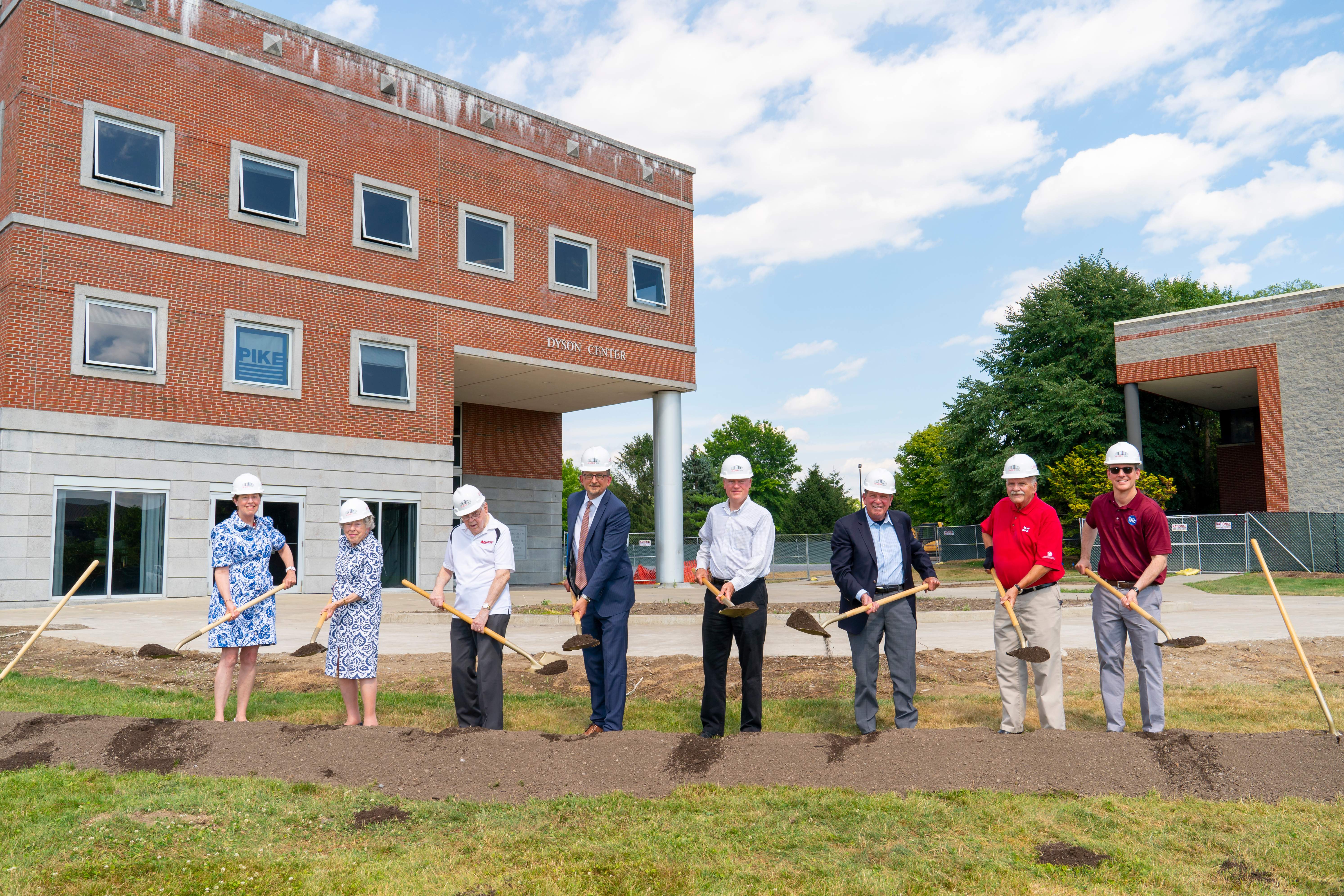
A reimagined home for the School of Management, School of Social and Behavioral Sciences, and Center for Career Services takes shape.
Marist College has officially broken ground on a major expansion and renovation of the Dyson Center, the home of the College’s Schools of Management and Social and Behavioral Sciences. Members of the academic administration, student body, and other dignitaries, led by Marist Trustee and Dyson Foundation Chair Rob Dyson, put shovels in the ground in July for the $60 million project, paving the way for a facility that will serve as a campus centerpiece and will double the size of the former building. The construction project is supported by a lead gift from the Dyson Foundation. Founded in 1957 and based in Dutchess County, the Dyson Foundation works to improve people’s lives through grant funding, promoting philanthropy, and strengthening the capacity of nonprofit organizations. The new Dyson Center, rendering courtesy of Ann Beha Architects, now Annum Architects."I have been in the unique position to watch the incredible growth of Marist over four decades," said Dyson, a past chair of Marist’s Board of Trustees. “It heartens me that the new Dyson Center will be a centerpiece of learning and collaboration for many years to come."The original Dyson Center opened in 1990. The expansion and renovation have been designed by the internationally recognized firm Annum Architects (formerly Ann Beha Architects). The new facility will feature state-of-the-art classrooms; faculty offices; a 150-seat tiered lecture hall; and labs for student–faculty research, especially in the areas of cognitive, developmental, and social psychology.The building will also boast a number of multipurpose collaboration spaces for student and faculty use and will incorporate many sustainable elements, reflecting the College’s long-standing commitment to the environment. There will also be expansive new common areas, including an atrium with a soaring ceiling, a café, a lounge, and abundant social and collaborative space.The Collaborative Study Center in the new Dyson Center. Rendering courtesy of Ann Beha Architects, now Annum Architects.The new Dyson Center will bring a wealth of new resources to the School of Social and Behavioral Sciences and the School of Management. Within the School of Social and Behavioral Sciences, teacher education students will have a new STEM classroom with an adjoining creative space. Psychology, criminal justice, and pre-law students will also be able to use unique learning spaces.The School of Management will include an expanded Student Investment Center with a professional trading floor providing the same technology found on Wall Street. It will also house the school’s Advising Center and the Bureau of Economic Research."The new Dyson Center will be an inspiring place for teaching, learning, research, and collaboration," said Marist President Kevin Weinman. "With its beautiful design, central location, and ample public space for socializing, group study, and individual work and reflection, students of all disciplines will benefit from this truly transformative facility. My sincerest thanks to Rob Dyson and everyone at the Dyson Foundation, Ann Beha, Marist’s Board of Trustees, and President Emeritus Dennis Murray for their work over many years to bring this vision to life.""The new Dyson Center will have specialized spaces for psychology labs, a mock courtroom, a command center, a therapy suite, a K–12 teacher training lab, maker space, and general classrooms configured to maximize current best practices for college instruction," said Dr. Deborah Gatins, dean of Marist’s School of Social and Behavioral Sciences. "I look forward to even more exciting faculty and student collaboration on projects and research.""For School of Management students, this building will create new opportunities to learn in an attractive environment," said Dr. Will Lamb, dean of Marist’s School of Management. "The classrooms are designed to allow our faculty and staff to adapt the layouts to the subject being taught. The new homes for our Investment Center and the Center for Career Services will help students prepare for and launch their careers in exciting new ways. The building will elevate the student experience and help us continue to attract the best and the brightest."The mock courtroom in the new Dyson Center. Rendering courtesy of Ann Beha Architects, now Annum Architects.The Center for Career Services, which offers a variety of programs and resources to assist Marist students and alumni in setting career goals and gaining employment, will also be housed in the Dyson Center."The Center for Career Services is incredibly excited about the new Dyson Center, along with its centralized location giving us a beautiful venue for hosting career and internship fairs, networking events, peer mentoring sessions, alumni/employer panel discussions, and more," said Mary Jones, executive director for the Center for Career Services. "We look forward to continuing to help Marist students achieve their career goals in this reimagined campus centerpiece."The new Dyson Center includes a number of environmentally sustainable initiatives including the adaptive reuse of the existing foundation and structure, highly insulated walls, a high-efficiency HVAC system, and a roof featuring living vegetation installed on top.The building is expected to open in spring 2024. For more photos of the groundbreaking and renderings of the design, visit marist.edu/dyson.A wide array of naming opportunities are available throughout the building. To learn more, please contact Chris DelGiorno, vice president for college advancement, chris.delgiorno@marist.edu
27 Oct 2022
Edition: Spring 2023 -
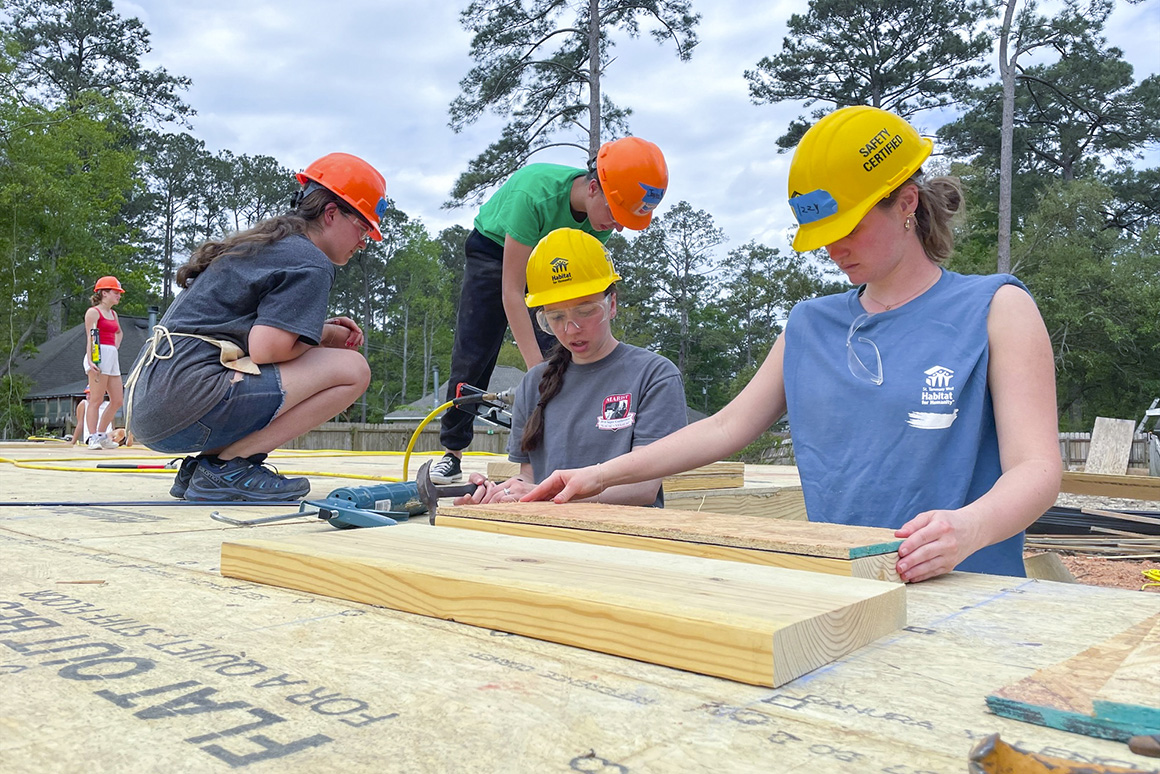
A group of Marist students dedicated their Spring Break to helping families in need.
The College’s Habitat for Humanity Club traveled to Louisiana, where 10 students, led by advisors, worked on building new homes near New Orleans.
13 Apr 2023
Edition: Spring 2023 -
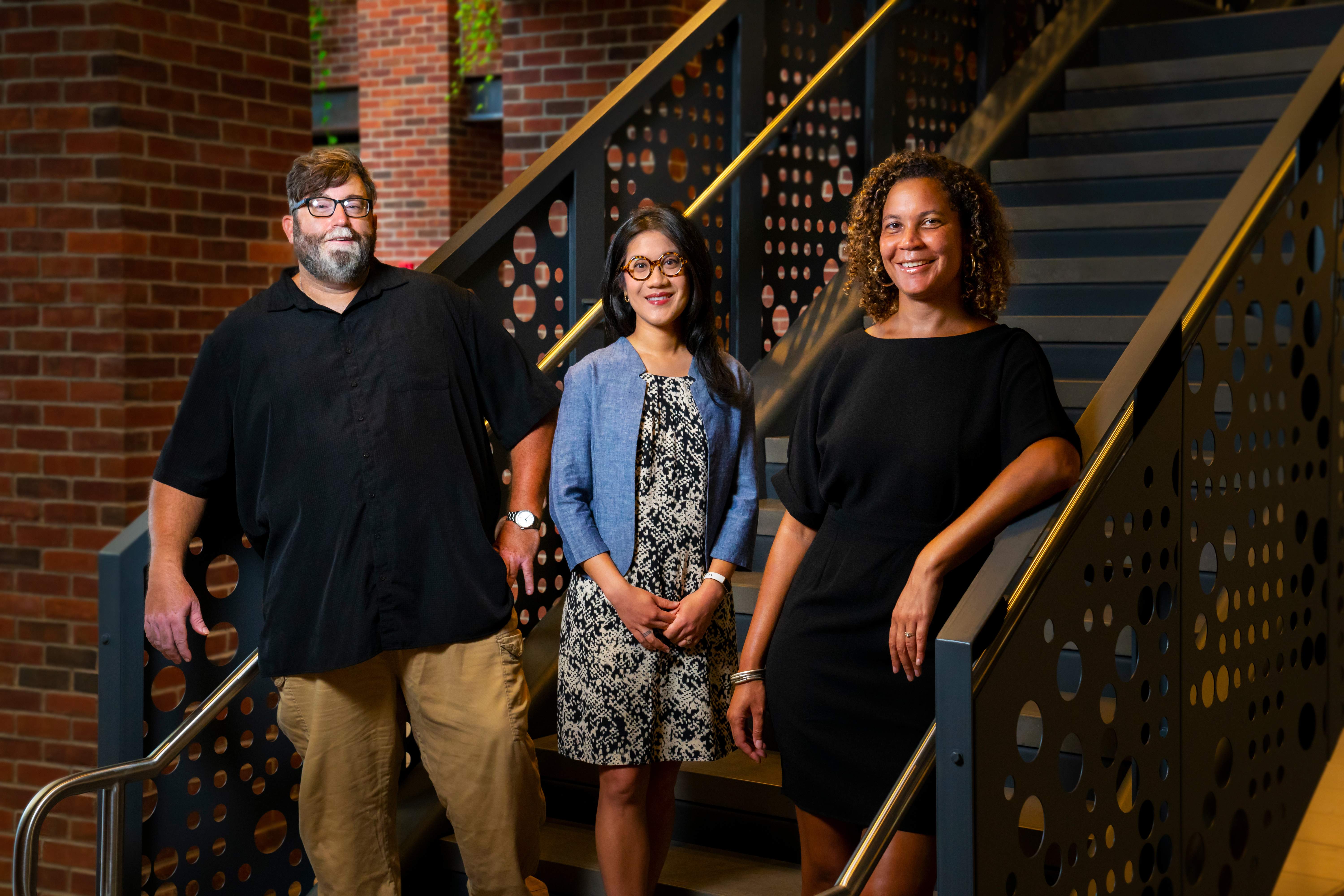
The Marist Mindset List, composed by a trio of Marist faculty, list focuses on a variety of academic disciplines where incoming students are making an impact, and its primary purpose is to give students, their faculty, and even their parents a sense of common ground to spark meaningful conversations, both in and out of the classroom.
The Class of 2026 has arrived, and this year’s group of incoming students has hit the ground running in hopes of being at the back end of the COVID-19 pandemic. This group comes to college having lived much of their high school years with disruptions and due to COVID-19 are looking for a sense of “normal.” This experience has been impactful to this new group of students, who like any incoming class, has a unique take on cultural references and interests.Each year, the Marist Mindset List is crafted as a “cultural compass” exploring the triumphs and challenges for incoming college students. Also known as the “always/never” list, the Marist Mindset List digs into topics spanning public health in addition to political, computer, and environmental sciences as well as fashion and diversity, and equity and inclusion. The list features 10 items in all, which include additional reading in the form of links to sources and, in some cases, living examples of items. Much of the Class of 2026 was born in 2004, so cultural references were entered with that in mind.The list is compiled each year by the Marist Mindset team of Tommy Zurhellen, associate professor of English; Dr. Vanessa Lynn, assistant professor of criminal justice; and Joyce Yu-Jean Lee, assistant professor of art and digital media.“The Marist Mindset List for the Class of 2026 is particularly interesting to me, because we’re seeing how incoming students react to the gradual end of the pandemic that has already affected their academic paths in so many ways,” said Zurhellen. “COVID may be waning, but COVID fatigue is still very much a factor in the choices our students make. This year’s list certainly reflects that unique trend.”“While every Marist Mindset List has explored what touches and impacts an incoming class, this year we also see how many of the phenomena listed impact so many of us,” said Lynn, Marist Mindset Faculty Fellow. “I'm excited about that, because the list can be truly intergenerational.”The annual Mindset List was created at Beloit College in Wisconsin to reflect the world view of entering first year students—and to help faculty understand incoming classes. In 2019, the list moved to Marist, becoming the Marist Mindset List. Under the direction of Zurhellen, who is a Beloit alumnus, the list has become a collaborative effort each year with Marist faculty and students from different disciplines with diverse backgrounds.The 2022 Marist Mindset List for the Class of 2026Sports CommunicationThe Class of 2026 has always known LeBron James as the most recognizable sports icon on the planet. LeBron James entered the NBA in 2003 and in 2004, the year many of the Class of 2026 were born, his jersey topped the best-seller list for the first time; in 2022, James’s jersey still tops the list.Political ScienceFor incoming students, Hillary Clinton has always had a more significant role in American politics than Bill Clinton. Although older Americans may think of Hillary Clinton as primarily First Lady from the 1990s, incoming students born in 2004 only know her as a United States senator, secretary of state, and contemporary presidential candidate.Computer ScienceCreated in 2004, Facebook has been active for the entire lives of the Class of 2026. Although Facebook is only 19 years old, many incoming students already see the social media platform as outdated, preferring newer platforms such as TikTok and Instagram.EthicsIncoming students are the first generation in 50 years who must include their own reproductive rights as part of their overall college decision. The recent Supreme Court decision to overturn Roe v. Wade will affect so many decisions for young women, who currently make up 59 percent of college students in America.Global StudiesThe Class of 2026 will be the first since the “Duck and Cover” generation of the Cold War to live with the real possibility of world war and global conflict. The Russian invasion of Ukraine echoes the experiences of growing up during the Cold War, but today’s digital technology makes the images of war much more visceral.Environmental ScienceThe debate on climate change is over. Incoming students are now the first generation faced with the omnipresent reality to actually effect change to combat global warming. Greta Thunberg has set the stage for youth activism; now, incoming students are part of a new generation increasingly demanding legal reforms to improve future generations’ lives. Diversity, Equity, and InclusionThe Class of 2026 is the first cohort in recent memory for whom knowledge about a diverse country and world is actually regressing. Thirty-five states have recently introduced and/or passed legislation to either ban or censor teaching about race, sexual orientation, gender identity, and American history in schools.Public HealthIncoming students are still recovering from the mental health impact of COVID and COVID fatigue. Mental health has been an issue for some time, but the Class of 2026 is still recovering from the effects of the pandemic on their mental health.EducationThe Class of 2026 is the first to realistically see the possibility of canceling or reducing student debt. The Biden administration has publicly announced its determination to tackle the rise of crippling student debt. Will they get results?FashionIncoming students are aware of fashion sustainability, but nevertheless social media and influencer culture draw them to cheaper and faster options from online retailers. Students have a better understanding of sustainability than previous generations, but their consumer choices do not reflect a strong commitment to protecting the environment.See a full breakdown of this year’s Marist Mindset List for the Class of 2026 here.
28 Oct 2022
Edition: Spring 2023 -
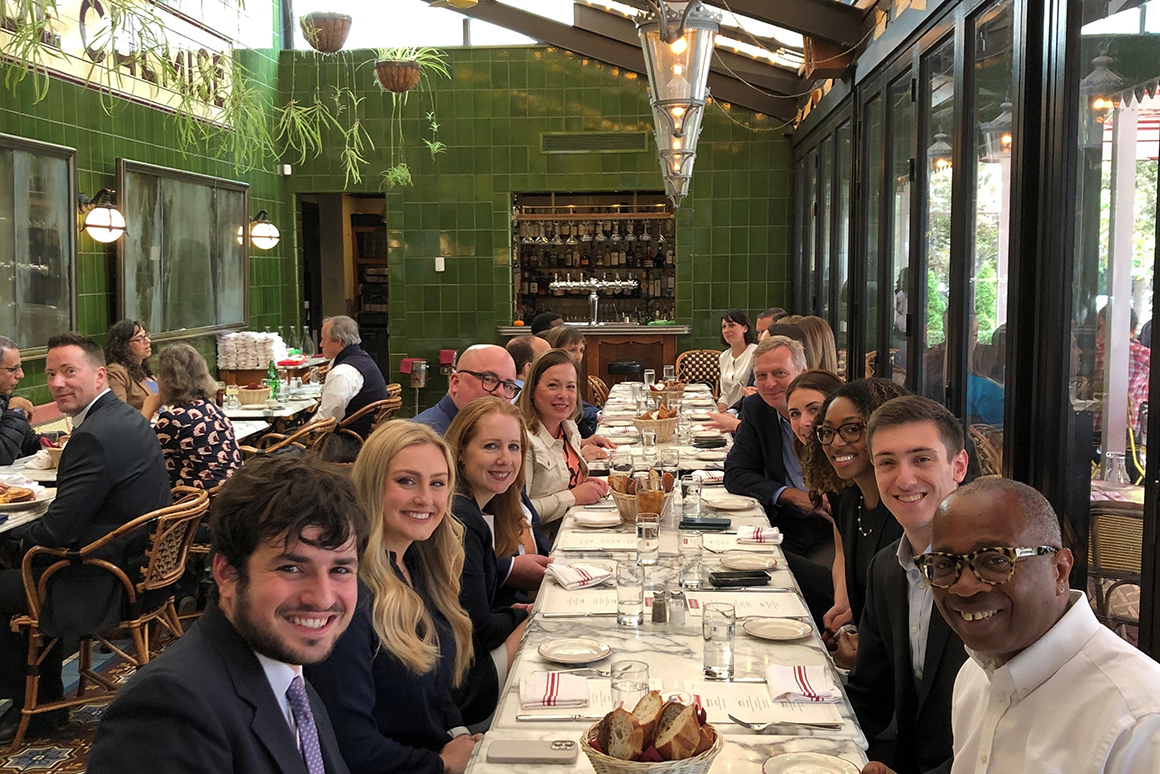
This past fall, the innovative Marist Poll team accurately measured the winners in Senate and gubernatorial contests across the nation, thanks to new, scientific polling methodologies.
This fall, the Marist Poll team tracked public opinion in the most hotly contested Senate and gubernatorial races across the country, and the results were spot-on! The Marist Poll accurately measured the winners in each of the called U.S. Senate and gubernatorial contests polled this election cycle. The Marist Poll’s success this year is the result of the implementation of new, scientific polling methodologies aimed at addressing the broader challenges confronting the polling community.Always innovators in the field of survey research and academia, the Marist Poll rigorously tested these methodologies during the year prior to the 2022 midterms, and the effort proved fruitful. The Marist Poll looks forward to sharing the insights from its election polls with the broader survey community as well as the hundreds of student workers, interns, and researchers who are at the fore of the Marist Poll Survey Center every semester.With an eye on the key issues driving the electorate, the Marist Poll also tracked the 2022 midterm elections with its national polling partners, NPR and PBS NewsHour. The NPR/PBS NewsHour/Marist Poll measured public opinion on President Joe Biden’s job performance, the economy, the labor force, and much more. In total, the Marist Poll conducted 12 public battleground state polls and 2 national surveys since Sept. 1, generating an estimated ad value equivalency of more than $300 million, according to the media monitoring service Meltwater.Also last fall, it was the Marist Poll’s distinguished pleasure to participate in the Office of College Advancement’s October event for the Washington, DC, alumni chapter. These two action-packed days began with an informal dinner with Marist President Kevin Weinman and distinguished political journalists with whom the Marist Poll has worked over the decades. The Marist Poll also hosted a luncheon where Marist Poll alumni had the chance to get to know President Weinman. The culmination of the trip was the broader gathering of Marist’s DC alumni chapter during which Dr. Lee Miringoff, director of the Marist Institute for Public Opinion, had the distinct honor of leading the discussion between Weinman and Marist’s best and brightest. From Marist students past to the present, undergraduates in Miringoff’s Political Communication and Politics course have, once again, experienced an insider’s view of the field. On-campus and virtual guest speakers this semester have included Congressman Jamie Raskin, author of Unthinkable: Trauma, Truth, and the Trials of American Democracy and who served as the lead impeachment manager in the second impeachment trial of former President Donald Trump; Lisa Desjardins, PBS NewsHour correspondent; Steve Thomma, executive director of the White House Correspondents Association; David Lightman, chief congressional correspondent for McClatchy; and Ron Brownstein, CNN senior political analyst and senior editor at The Atlantic.The Marist Poll would also like to take a moment to thank Marist alumni, staff, and friends of the College who contributed to the Marist Poll’s GiveCampus campaign. Those generous donations funded two student fellowship positions. The Marist Poll Summer Fellow for Distinguished Service in Media was awarded to Greta Stuckey ’23 who demonstrated outstanding journalistic integrity, exemplary writing and research skills, a passion for the media industry, and proven leadership ability. Sarah Knauss ’23 was named the Marist Poll Summer Fellow for Distinguished Service in Data Science which is awarded to a Marist College student who demonstrates exceptional analytical writing and research skills, exhibits a strong interest in the field of survey research and/or data analysis, and is a proven leader. For those who might have missed it, the Marist Poll, in conjunction with the Marist Center for Sports Communication, surveyed Americans about Title IX, 50 years after the passage of this groundbreaking legislation. To commemorate the anniversary of Title IX in June, the Marist Poll and the Marist Center for Sports Communication hosted a virtual panel featuring female luminaries in sports, broadcasting, and policy. Marist Poll Director of Data Science and Technology Stephanie Calvano ’04 moderated the panel which included Margaret Dunkle, architect of Title IX; Aditi Kinkhabwala, former national reporter for the NFL Network; Rebecca Lobo, WNBA and women’s college basketball analyst and reporter for ESPN and former WNBA All-Star; Jane McManus, executive director of Seton Hall’s Center for Sports Media; and Julianne Viani ’08, basketball analyst in sports broadcasting for ESPN, CBS Sports Network, NBC Sports, and YES Network, as well as other networks.
15 Feb 2023
Edition: Spring 2023 -
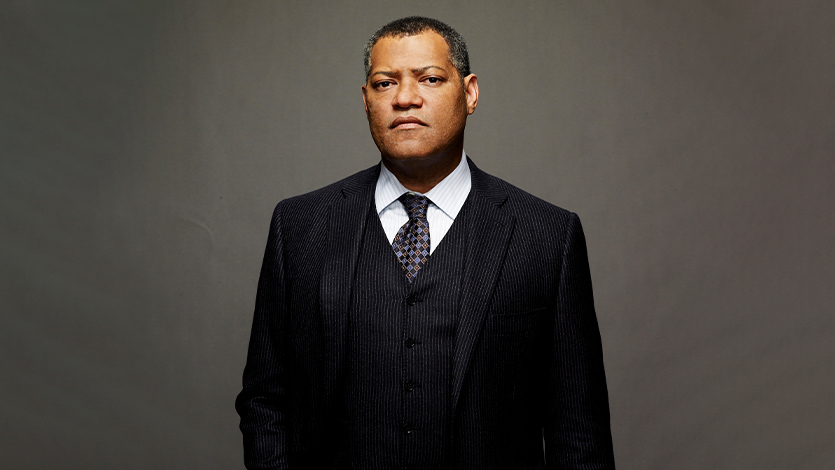
NYSAF will work with the College to lend professional expertise to its curricular programs as Marist students serve as interns and staff members.
New York Stage and Film at Marist College returns to Poughkeepsie July 14-August 6 for its 2023 Summer Season, which will feature a combination of emerging artists and Hollywood and Broadway headliners.
27 Mar 2023
Edition: Spring 2023 -
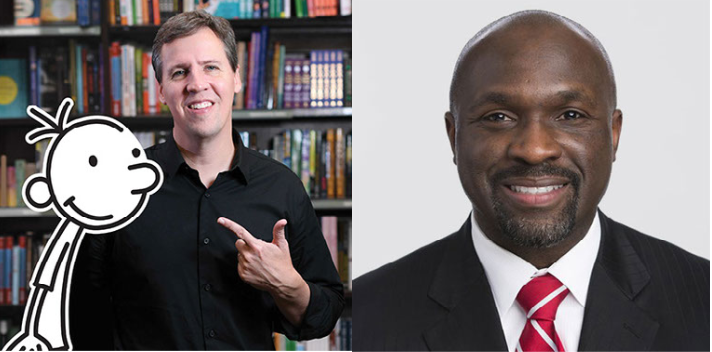
Best-selling author Jeff Kinney will address traditional undergraduates of the Class of 2023 at Marist’s commencement ceremony May 20 and adult undergraduate, master’s, and doctoral students will be honored the night before with Jerome Pickett ’98 as their commencement speaker.
Best-selling author of the popular Diary of a Wimpy Kid series and cartoonist Jeff Kinney will address traditional undergraduates of the Class of 2023 at Marist College’s Commencement ceremony on Saturday, May 20 on the Campus Green. Adult undergraduate, master’s and doctoral students will be honored the night before, with esteemed Class of 1998 Marist alumnus, Jerome Pickett, serving as Commencement speaker.
28 Mar 2023
Edition: Spring 2023 -
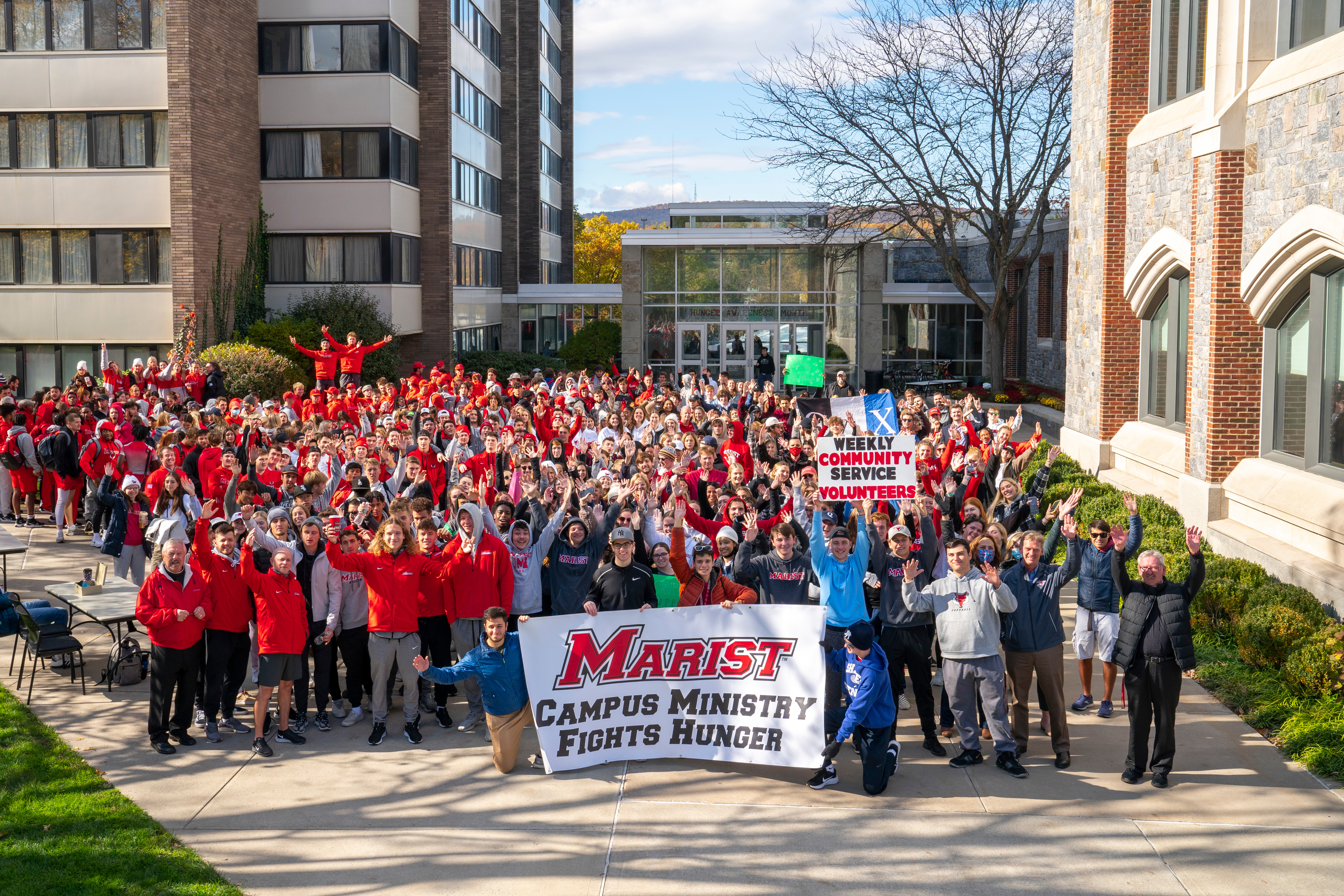
The Hunger Walk takes place for the 29th year.
On Nov. 3, Marist students continued the tradition of the Hunger Walk for the 29th year. The walk was part of Hunger Month, a program organized each November by Campus Ministry.More than 600 people took part in the approximately 30-minute walk around the campus. Students donated $3 each. A total of $1,167 was raised, according to Br. Michael Flanigan, FMS, who has coordinated the Hunger Walk for the past 13 years.Additional activities during Hunger Month include the collection of non-perishable food and Buck Hunger, the collection of donations of a dollar or more.The food is donated to the food pantry at Dutchess Outreach of Poughkeepsie. The cash donations are made to Bread for the World, Lazarus House (Lawrence, MA), the Guadalupe Middle School in Brownsville, TX, and the Lunch Box Soup Kitchen at Dutchess Outreach.
16 Nov 2021
Edition: Winter 2022 -
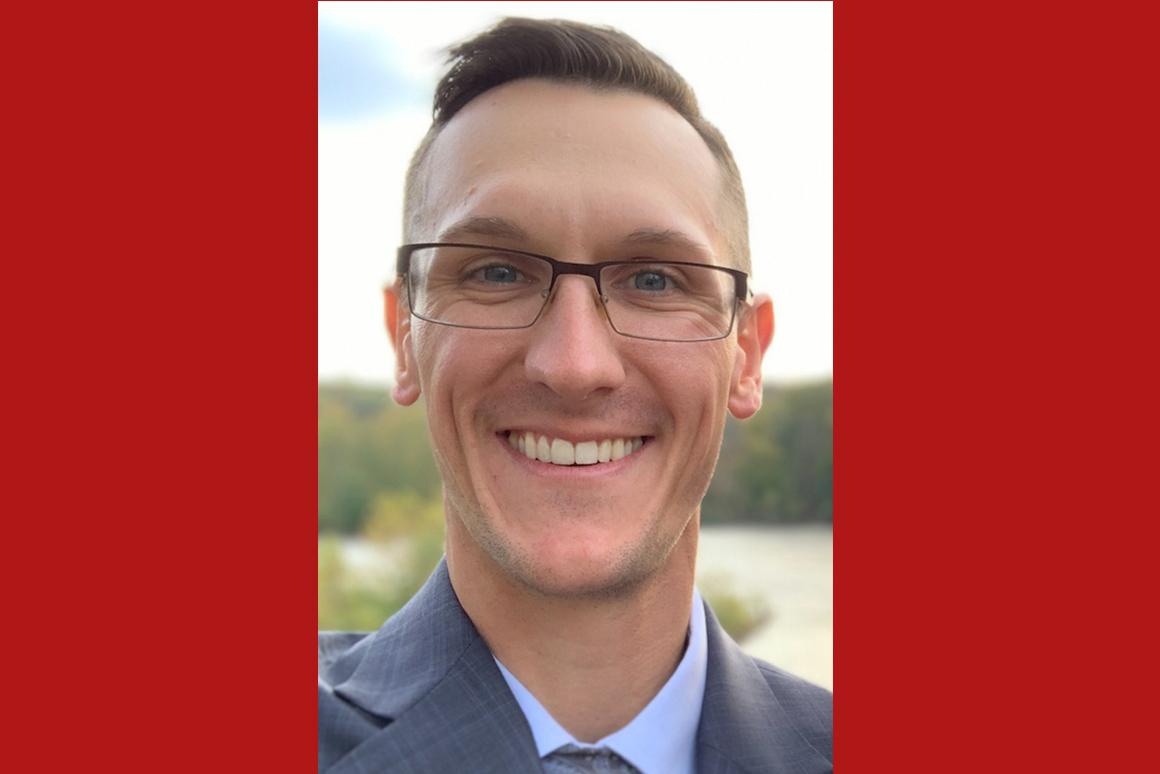
Matthew Szymaszek, DO, has been helping people fight the coronavirus from the outset of the pandemic.
Matthew Szymaszek, DO, has been helping people fight the coronavirus from the outset of the pandemic.The Simsbury, CT, native and long-distance runner for the Marist track and field team graduated in 2007 but returned to the College to finish research that he started with Dr. Zofia Gagnon, a former associate professor of environmental science, before taking the MCAT — the Medical College Admission Test, a standardized test that is part of the medical school admissions process — in 2008. He began medical school at the Lake Erie College of Osteopathic Medicine in Erie, PA, where he met his wife, Lindsey, in 2009. After originally settling down in Delaware, the couple moved to Colorado. In the fall of 2019 Szymaszek started working in critical care for Pulmonary Associates in Colorado Springs, CO. Just a few months later, the world was rocked by the coronavirus. In March 2020, his work environment started changing. “I don’t think there was a single non-COVID patient at one time, and we have a couple different ICUs,” he said about the period around Thanksgiving 2020. “I think one of our towers — 16 beds — was all coronavirus patients, all on ventilators.”As the weeks and months went on, more data and research showed that there were more than just respiratory issues to deal with, namely blood clots that formed in kidneys. Still, day-to-day responsibilities didn’t change all that much. Szymaszek’s routine, he said, consists of “seeing everybody, making sure their work of breathing hadn’t changed, making sure they didn’t develop any other secondary organ disfunction — particularly, any kidney dysfunction — and then it’s symptomatic management after that.” Workplace efficiency, Szymaszek explained, was the primary way his job changed. “Taking care of patients is the primary focus,” he said, “but certainly, you still have to document everything that you’re doing. I think that was the biggest time crunch — trying to see everybody, making sure you weren’t missing anything, making sure all the nurses’ needs were addressed, talking with families.” Since the information about the virus was so fluid, the latter task was time-consuming and difficult to address. Hospital procedures and operation plans were updated daily, primarily in the limitation of visitors at the hospital and how to avoid clutter in ICUs. Patients were admitted to higher levels of care only when their need for additional oxygen escalated. Szymaszek and the other doctors gave input to the hospital’s higher-ups as well as each other. “It was our anecdotal experiences day in and day out that we would share with one another and learn from those things,” he said. One experience that proved to be an astute observation by one of the doctors was the beneficial impact of steroids. Results in the Randomized Evaluation of COVID-19 Therapy (RECOVERY) trial involving hospitalized patients with COVID-19 showed that using dexamethasone over 10 days improved mortality.Learning from experience was a critical part of fighting an unknown enemy. “Our system as a whole, early on, developed a treatment algorithm as things were evolving and coming out of other countries,” Szymaszek said. The components of that algorithm have been and continue to be in flux. At first, they used convalescent plasma donations from recovered patients, which contain antibodies that can fight off the virus. Treatments that have been mainstays, Szymaszek explained, are steroids (such as dexamethasone and Solu-Medrol) and anticoagulation medicines, which help protect against blood clots.Of course, no treatments were discovered to be a magic wand. Steroids brought along problems in people with preexisting conditions, namely with blood-sugar levels. “That’s always been an ongoing battle…because they’re on high-dose steroids off and on for weeks and weeks,” Szymaszek said. “And if they have already have some underlying diabetes and other issues, it just becomes a nightmare to get those things under control.”Vaccines initially slowed the progression of cases and severity of disease, but the advent of the delta variant has only spurred more hospitalizations and unprecedented "crisis standards" of care for some hospital systems. “We continue to have a steady influx of patients infected with coronavirus not just from the local community but also from hospital systems both in and out of the state,” said Szymaszek. “In the beginning of the pandemic, most patients were hospitalized with COVID and there was a noticeable decline in other medical conditions such as stroke or cardiac conditions and even trauma-related cases. Now, we have an increase in both COVID and other medical conditions which is why trying to find open beds for some systems is a challenge. At this stage of the pandemic the vast majority of cases can be prevented with vaccination, and yes, there are going to be breakthrough cases as more people are vaccinated, but the chances of requiring hospitalization or death are incredibly reduced. “The science is constantly evolving and I think that's what is hard for people to understand. What we knew a year or a few months ago may not be true today as we continue to learn more about this virus and its variants.” Szymaszek has paved himself numerous different paths to unwind and get away from work. One of the reasons the Szymaszeks moved to Colorado was to be close to Lindsey’s family so that her parents could help watch their children. Another was that it offered them plenty of outdoor activities. It’s a gold mine for the outdoorsy couple, who live on the north side of Garden of the Gods Park, in the foothills of Pikes Peak Mountain, and within hours of numerous skiing resorts. Szymaszek likes hiking, biking, fly fishing, and taking his boys — six-year-old Owen and five-year-old Evan — walking on nature trails. “My boys are in school and a local mask mandate has dramatically cut cases and quarantines for students and teachers when compared to when it was optional.”Staying true to his roots as a long-distance runner, Szymaszek competes in time trials with his college teammates. The pool of competitors features Sean Hopkins ’05, Sean Prinz ’06, Justin Harris ’07, Michael Schab ’06, and Michael Rolek ’08. Out of boredom during quarantine time, Prinz proposed the idea of doing competitions to stay active. They would pick various events and share the results with each other.Head coach Pete Colaizzo ’86 remembers Szymaszek — or as he called him, CT, the abbreviation for his home state — as “one of the highest-mileage guys on the team,” he said. “Always ran a lot. Always ran twice a day — early morning runs, late night runs, in addition to our practices. He’s the type of guy you just want on the team.” Szymaszek continues to participate in triathlons and half Ironmans, with more races on the horizon this winter and spring. For him, running has always been more than exercise; it’s an emotional outlet.“I don’t think I would have been able to get through med school if it weren’t for the running,” he said. “That was the only thing that was consistent, [that] I knew I could rely on, to go out and clear my mind, think about stuff. That certainly still holds true now.”
21 Jul 2021
Edition: Winter 2022 -
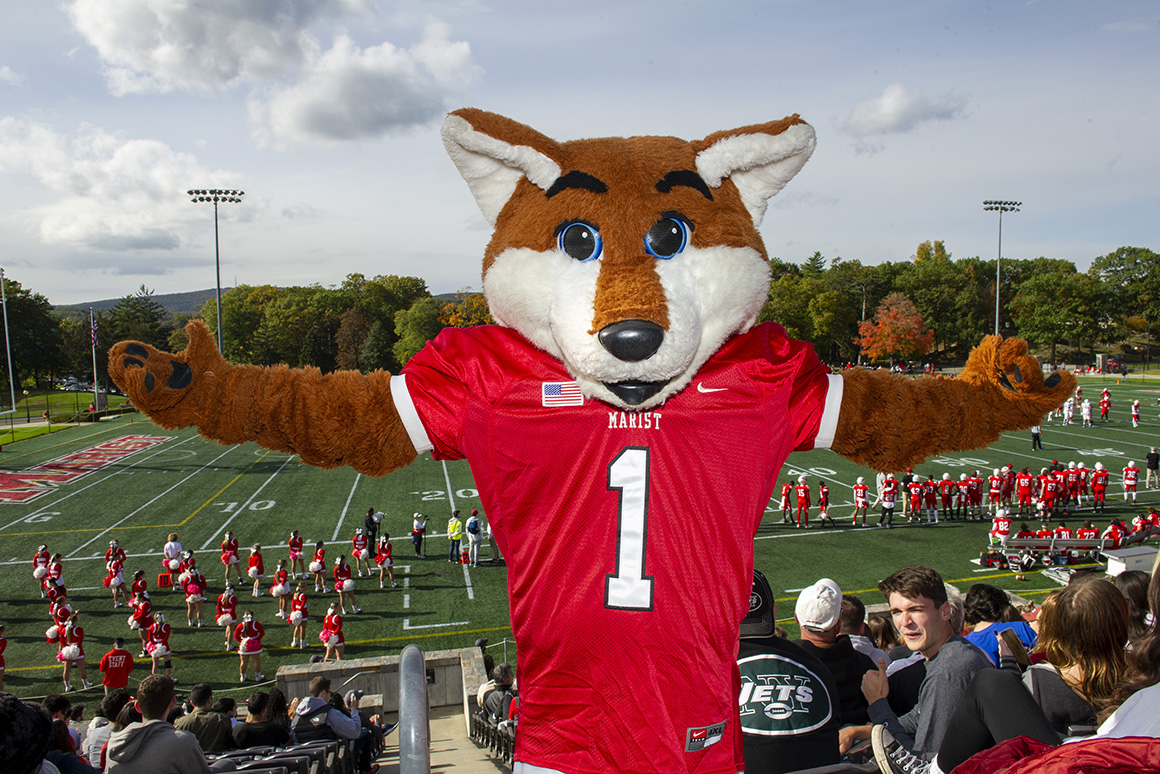
Although the Class of 1970 and 1971 Reunion Committees opted to postpone their 50th reunions, Marist hosted a successful outdoor and COVID-safe Homecoming and Reunion on Oct. 23.
Although the Class of 1970 and 1971 Reunion Committees opted to postpone their 50th reunions, Marist hosted a successful outdoor and COVID-safe Homecoming and Reunion on Oct. 23. The day included Marist Singers and Band alumni performing with current student Singers and Band members, the Theatre Hall of Fame induction, the Morehead State vs. Marist football game, and four tents celebrating affinity groups on campus: the Student Government Association, the Study Abroad Program, the Marist Music Program, and the Fashion Department. The day ended with a reunion celebration for all classes under a large tent on the Marist Green.Photos by Al Nowak/On Location StudiosAlumni Join Marist Band and Singers at Homecoming 2021 Homecoming and Reunion Picnic 2021 Marist vs. Morehead State Homecoming and Reunion 2021 Theatre Hall of Fame 2021 .carousel { color: #170724; --carousel-button-bg: #fff; --carousel-button-shadow: 0 2px 1px -1px rgb(0 0 0 / 20%), 0 1px 1px 0 rgb(0 0 0 / 14%), 0 1px 3px 0 rgb(0 0 0 / 12%); --carousel-button-svg-width: 20px; --carousel-button-svg-height: 20px; --carousel-button-svg-stroke-width: 2.5; } document.addEventListener("DOMContentLoaded", function(event) { const myCarousel = new Carousel(document.querySelector("#moyo_.carousel"), {}); }); document.addEventListener("DOMContentLoaded", function(event) { const myCarousel = new Carousel(document.querySelector("#dybk_.carousel"), {}); }); document.addEventListener("DOMContentLoaded", function(event) { const myCarousel = new Carousel(document.querySelector("#vdas_.carousel"), {}); }); document.addEventListener("DOMContentLoaded", function(event) { const myCarousel = new Carousel(document.querySelector("#iekw_.carousel"), {}); });
28 Oct 2021
Edition: Winter 2022 -
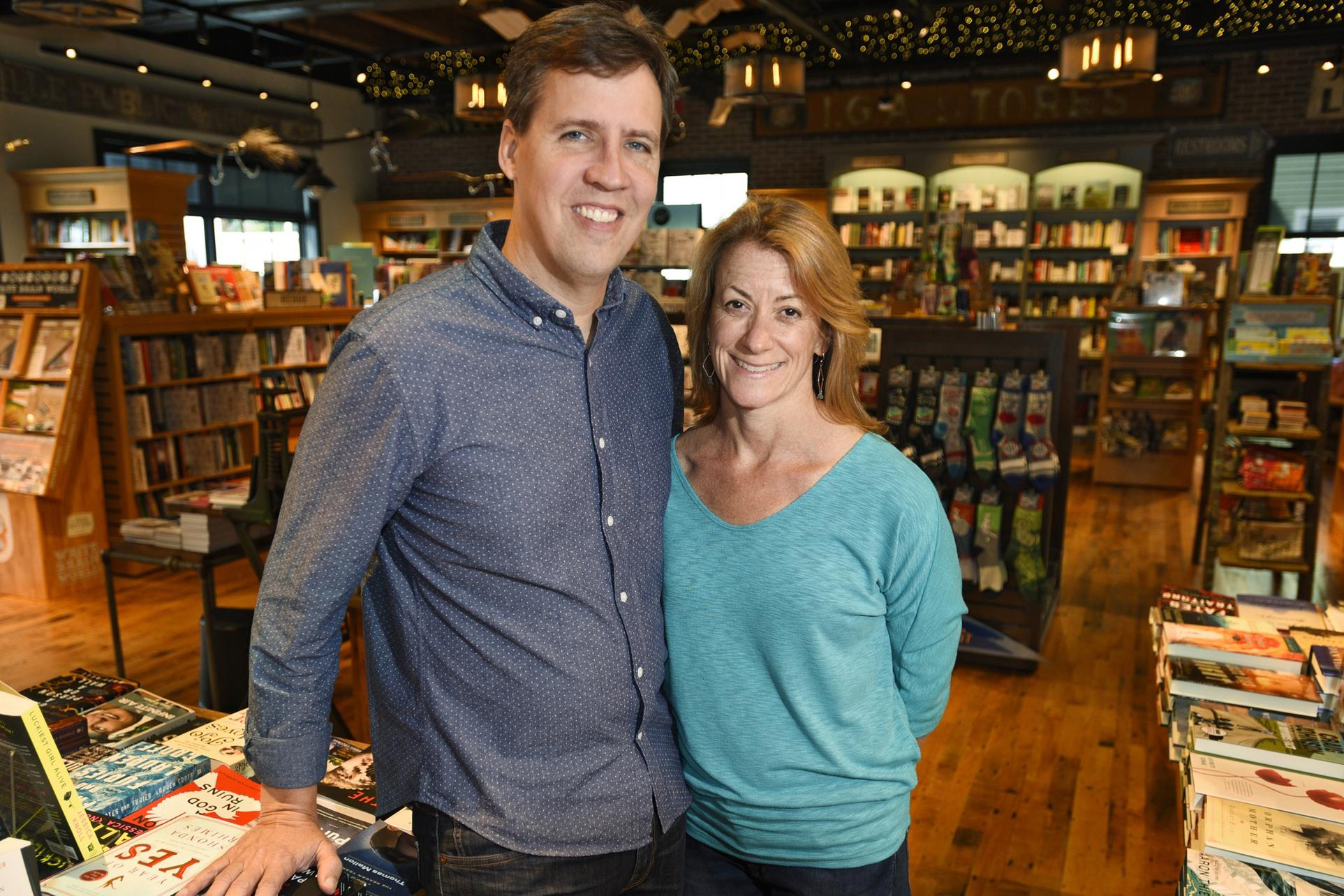
Julie Cullinane Kinney ’90 and author Jeff Kinney take Marist alumni inside his best-selling series Diary of a Wimpy Kid.
More than 250 alumni and friends along with their families got an exclusive look inside the evolution of the best-selling book series “Diary of a Wimpy Kid” thanks to the generosity of Marist alumna Julie Cullinane Kinney ’90 and her husband, Jeff, the creator of the series. In a virtual presentation Oct. 15, Julie and Jeff shared the origins of the 16-book cartoon series featuring hapless middle-schooler Greg Heffley that has become an international sensation. The ticket price to the Marist-only event included a signed copy of Jeff’s newest book, Big Shot, published in October. All proceeds from the event, organized by the Marist Alumni Relations Office, benefited the Marist Alumni Legacy Scholarship Fund, raising more than $10,000. Special thanks go to Julie and Jeff for making the event possible. Julie interviewed Jeff about the evolution of the series Diary of a Wimpy Kid in a virtual program from their bookstore, An Unlikely Story, in Plainville, MA.Since the first Wimpy Kid book made its debut in 2007, more than 250 million copies have been published in 79 editions in 65 languages. The Wimpy Kid series has been a constant on the USA Today, Wall Street Journal, and Publishers Weekly best-seller lists and has remained on the New York Times children’s series best-seller list for more than 657 weeks. The series has won a number of regional and national awards including two Children’s Choice Book Awards and six Nickelodeon Kids’ Choice Awards for Favorite Book. Jeff Kinney was named one of Time magazine’s most influential people and is also the creator of Poptropica, named one of Time’s 50 Best Websites. The Disney+ movie Diary of a Wimpy Kid premiered in early December.Jeff and Julie took part in the Zoom program from their bookstore, An Unlikely Story, in Plainville, MA. Julie, a communications major in college and a former reporter and editor for a Massachusetts newspaper, interviewed Jeff for the Marist audience. She noted it was the first time she had interviewed him live for a virtual event. Then Jeff took live questions and gave a tour of his studio on the top floor of the bookstore, where his awards are on view.Jeff, a graduate of the University of Maryland, had been developing the book for a year when he and Julie began dating in 1999. He kept a journal jammed with notes and sketches that captured not only memories from his youth but also some of the couple’s early dating experiences. He continued writing and drawing for the next seven years as they dated, married, and had two sons, and as he worked full time as a software programmer. “It proves that you can do two things at once,” he noted, “that you can have your day job and pay your rent and you can also chase a rock-star dream in your spare time.” His dream was to be a newspaper cartoonist like Charles Schulz, the creator of Charlie Brown and "Peanuts.” For three years Jeff tried to make it happen. But “nobody liked my stuff,” he said. Then he decided to try something different. He bought a ticket to Comic Con, a comic convention in New York City, planning to show his sample packet around to editors there. But the convention had oversold its tickets and sent everyone away. While on a bus tour of New York City just for kicks, Jeff noticed that Billy Joel was playing a sold-out concert at Madison Square Garden. He called Julie saying he wanted to stay overnight to go to the concert. A huge Billy Joel fan herself, she encouraged him to go for it. “Billy Joel was our thing at Marist in the ’80s,” she said.He managed to get a ticket and went to the show. The next day, he was able to get into the Comic Con. An editor who saw his work said it was exactly what he was looking for. “So it was thanks to Billy Joel that I got to be a published author,” Jeff said.Throughout the presentation the Zoom chat room bubbled over with questions for Jeff. What inspired him to write the Wimpy Kid series?“My own childhood,” he said. “I was reading Harry Potter at the time. I was like, “Man, this is really good writing, it’s a good story.” But I did think Harry was very, very different than I was as a kid. I did think there might be an appetite for a character who was not so perfect and not so heroic as Harry.”He said his newest Wimpy Kid book, Big Shot, shows what it’s like to be in athletics but not be a star athlete. “I think it’s important that a kid can see himself.”Earlier, he had elaborated on the appeal of his wimpy protagonist.“Greg is a messy character. When kids read kids’ books, the character is usually aspirational. They’re heroic. Like think of Harry Potter, characters like that. They’re the hero that we want to be. And Greg isn’t, really. You know, books can be mirrors and windows, right? Windows, you see into another world. That’s Harry Potter. Mirrors are books where you see yourself. That’s Wimpy Kid. And I think a lot of kids are messy.”Another young fan asked where Greg’s memorable nickname “Ploopy” came from.“Ploopy was a nickname that my older sister came up with for me,” Jeff explained. “And for some reason, it just got me. It made me so mad, like it would make my ears turn red.”He got over it, though. “We’ve made our peace. And I’m making money off of her calling me ‘Ploopy.’ So I think I won that situation.”
26 Oct 2021
Edition: Winter 2022 -
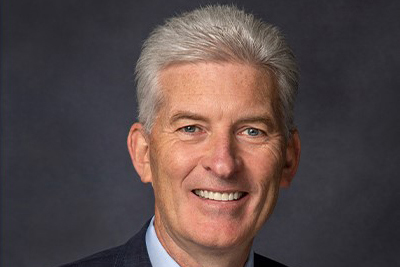
Healthcare executive Dirk McMahon ’82, entrepreneur and author Kristin Noto ’91, and technology executive Donna Dillenberger have joined the Marist College Board of Trustees.
In 2021 the Marist College Board of Trustees welcomed three new members. Dirk McMahon ’82, president and chief operating officer of UnitedHealth Group (NYSE: UNH) and Donna Dillenberger, IBM Fellow at the company’s Research Center in Yorktown Heights and CTO of systems research for Hybrid Cloud, were elected to the board at its February meeting, while Kristin Noto ’91, an entrepreneur and author with extensive experience serving not-for-profit organizations, was elected at the November annual meeting. McMahon, who graduated from Marist with a BS in finance, has held senior leadership positions across both UnitedHealth Group business platforms — UnitedHealthcare and Optum. Most recently, he served as chief executive officer of UnitedHealthcare, the nation’s largest health insurer. Prior to that, he was president and chief operating officer of Optum, a global health services company, and head of airport operations worldwide for Northwest Airlines. In addition to earning his undergraduate degree from Marist, McMahon received an MBA from the University of Notre Dame. He and his family reside in Minnesota.Kristin Noto '91Noto received a BA in psychology from Marist, and her father is also an alumnus of the College. She is the author of Live E.P.I.C.: Invest in Yourself. Cultivate Character, and Embrace the 7 Moral Virtues that Lead to a Happier Life, as well as an inventor with several registered patents on houseware products. Noto also serves on the West Coast Advisory Board for the Child Mind Institute, a nonprofit organization dedicated to transforming the lives of children, families, and communities affected by mental illness and learning disabilities. She is a former executive board member of the USA Lacrosse Foundation. Noto and her family live in Northern California. Donna DillenbergerDillenberger has had a distinguished career at IBM and currently serves as IBM Fellow at the company’s Research Center in Yorktown Heights and CTO of systems research for Hybrid Cloud. Her focus is on machine learning, counterfeit detection, cloud security and availability, and enterprise systems. In the past, Dillenberger has worked on machine learning models for the financial, insurance, retail, and healthcare industries and has designed new features for systems scalability and availability. She is the author of numerous research publications and holds multiple patents, becoming a Master Inventor at IBM. In recognition of her work, IBM’s CEO appointed her an IBM Fellow, the highest technical honor at the company. IBM Fellows are given broad latitude to identify and pursue projects. In the history of IBM, only 317 people have received such a distinction.Dillenberger received her BS in mathematics from New York University and an MS in computer science from Columbia University. She was an adjunct professor at Columbia’s Graduate School of Engineering and was a lecturer at the Massachusetts Institute of Technology, Rensselaer Polytechnic Institute, and Stanford University.
30 Nov 2021
Edition: Winter 2022 -
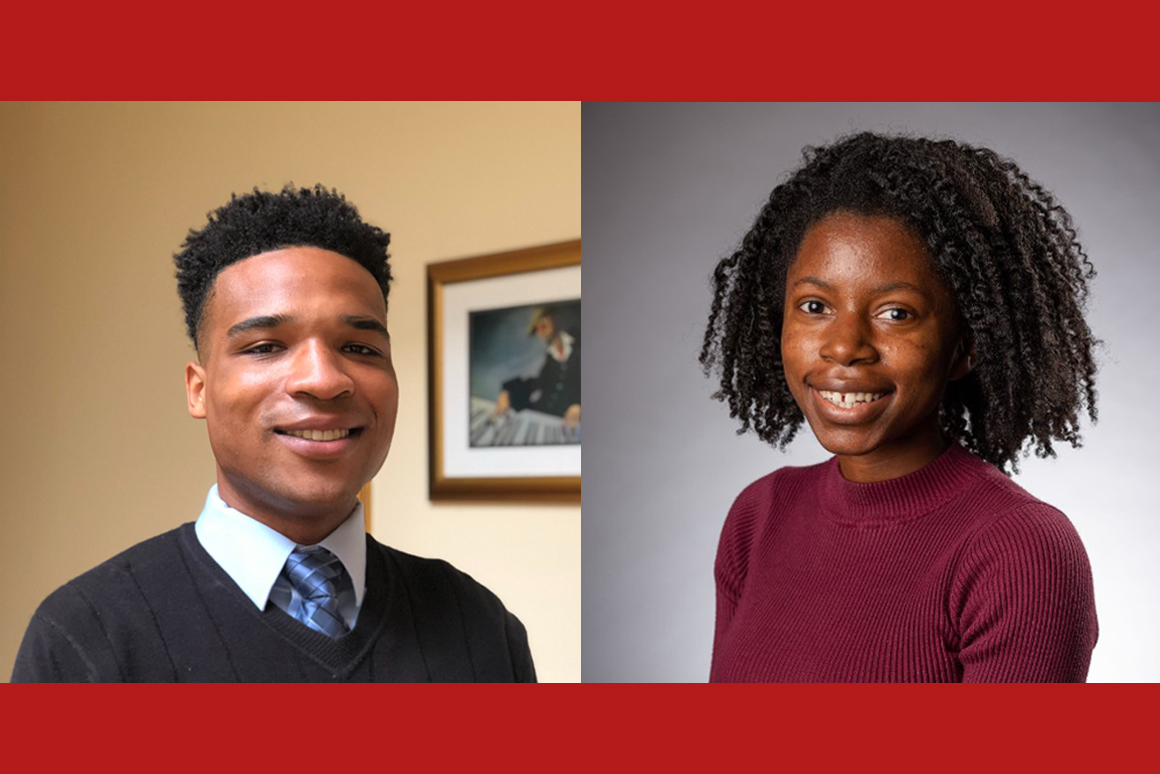
Moss and Terrence Echols ’21 Also Selected for Unique Mentorship Program
Kaylin Moss ’21 has received the 2021 Generation Google Scholarship, a Google-sponsored program. She is one of 42 college students nationwide to win the award. Moss is majoring in computer science with a concentration in software development.The Generation Google Scholarship was established to help aspiring students pursuing computer science degrees excel in technology and become leaders in the field, according to buildyourfuture.withgoogle.com. Selected students receive $10,000 USD (for those studying in the US) or $5,000 CAD (for those studying in Canada) for the 2021–2022 school year. The scholarship is awarded based on the strength of each candidate's commitment to diversity, equity, and inclusion, demonstrated leadership, and academic performance.Moss was also one of two Marist students selected for the inaugural Gumbo Coalition University Mentorship Program. Moss and Terrence Echols ’21 each received a $1,500 scholarship from Resorts World Casino.Following a competitive application process, Echols and Moss were selected to enroll in the mentorship program sponsored by Resorts World Casino.They were two of 10 college students who earned the opportunity to participate in the intensive six-week virtual mentorship program to hear from prominent authors and speakers from all over the nation.The lecture series is based on Marc Morial’s book The Gumbo Coalition: 10 Leadership Lessons That Help You Inspire, Unite, and Achieve. Students in the program read chapters of the book and participated in virtual discussions with other leaders on the topics and lessons contained in the chapters.“Throughout history, effective leadership has guided us through the most challenging times,” said Michelle Stoddart, vice president of community development at Resorts World New York. “Now more than ever, a new generation of students must be equipped to lead boldly in the face of the medical, political, and environmental challenges we face as a country. By teaming up with the renowned civic leader and former New Orleans mayor Marc Morial, Resorts World is proud to present the Gumbo Coalition University, a virtual platform that will shape the leaders of tomorrow.”Morial, who was mayor of New Orleans from 1994 to 2002, is president and CEO of the National Urban League, the nation’s largest historic civil rights and urban advocacy organization. Both Marist students learned about the Gumbo Coalition University Mentorship Program from Desmond Murray, associate director for the employer experience in the Marist College Center for Career Services. Their applications included an essay discussing their professional experience and career-related goals. Candidates who advanced to the next round were invited to meet virtually with the program’s speakers and talk about what leadership meant to them.Echols majored in communications with a concentration in public relations/advertising and has already begun graduate work in Marist’s five-year dual degree program in integrated marketing communication. He was a student-athlete on the men’s basketball team and a senior researcher in Marist’s chapter of the American Advertising Federation. As an AAF member, he wrote copy and helped prepare presentations with his group for the National Student Advertising Competition. “Collaborating with everyone using online platforms like Zoom, FaceTime, and Google Meet has really helped me get comfortable having meaningful conversations in a virtual environment,” Echols said.He mentioned how joining the Marist Radio Club as a freshman inspired him to create his own podcast, which has helped him articulate his thoughts and ideas on a variety of topics. This summer he is interning with Galaxy Media, a multidimensional media company that services clients in Syracuse, NY. He has thought about owning his own advertising agency one day but definitely aspires to a leadership role in marketing or public relations. He said participating in the Gumbo Coalition University Mentorship Program aligned with these goals.“I’m learning how I can be someone who others look to for guidance, and that’s inspiring.”Moss participated in the Marist/IBM Joint Study program for one year and completed a virtual internship with IBM in the summer of 2020. “The joint study exposed me to a lot of public speaking roles and presentations,” she said. “So I felt like I had a lot to draw on from that experience when applying for the (Gumbo Coalition University Mentorship) program.”In October 2020 Moss founded a chapter of the National Society of Black Engineers (NSBE) at Marist. The honor society’s main goal is to create an inclusive community for Black students and other students who are interested in pursuing opportunities in technology, engineering, and other sciences. In addition, Moss was recently named the winner of the health technology company Zillion’s Women in STEM Scholarship. She was chosen for her commitment to learning, perseverance, and advocacy for women in science. Moss sees computer science as an industry where she can hone her artistic talents.“In my career, I want to focus on things like software development, web design, user interfaces, and anything else that creates new digital experiences.”
Edition: Winter 2022 -
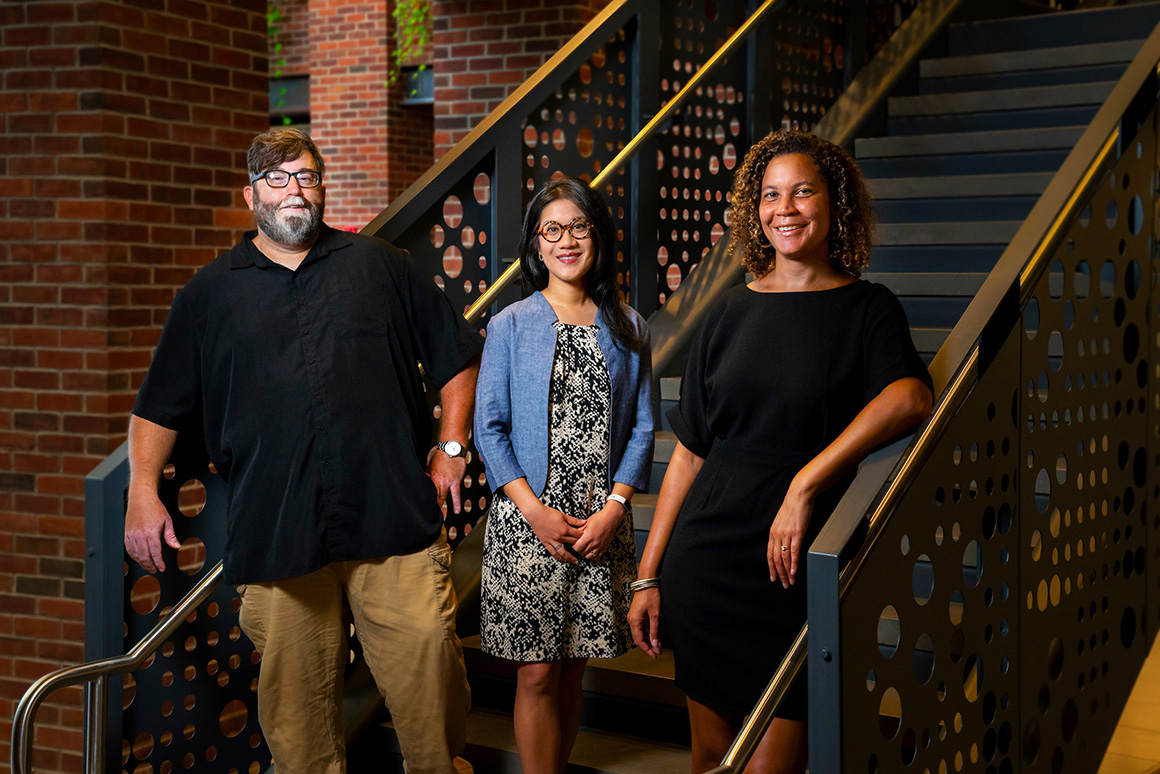
Marked by the COVID-19 pandemic, this class is unique in every way.
The Mindset List, aka the “always/never” list, is a compilation of key points about incoming college students. Created at Beloit College in 1998 to reflect the world view of entering first year students—and to help faculty understand incoming classes—the list started with the members of the class of 2002, born in 1980. In 2019, the list moved to Marist, becoming the Marist Mindset List. The list is widely considered a cultural touchstone.Read more
07 Sep 2021
Edition: Winter 2022 -
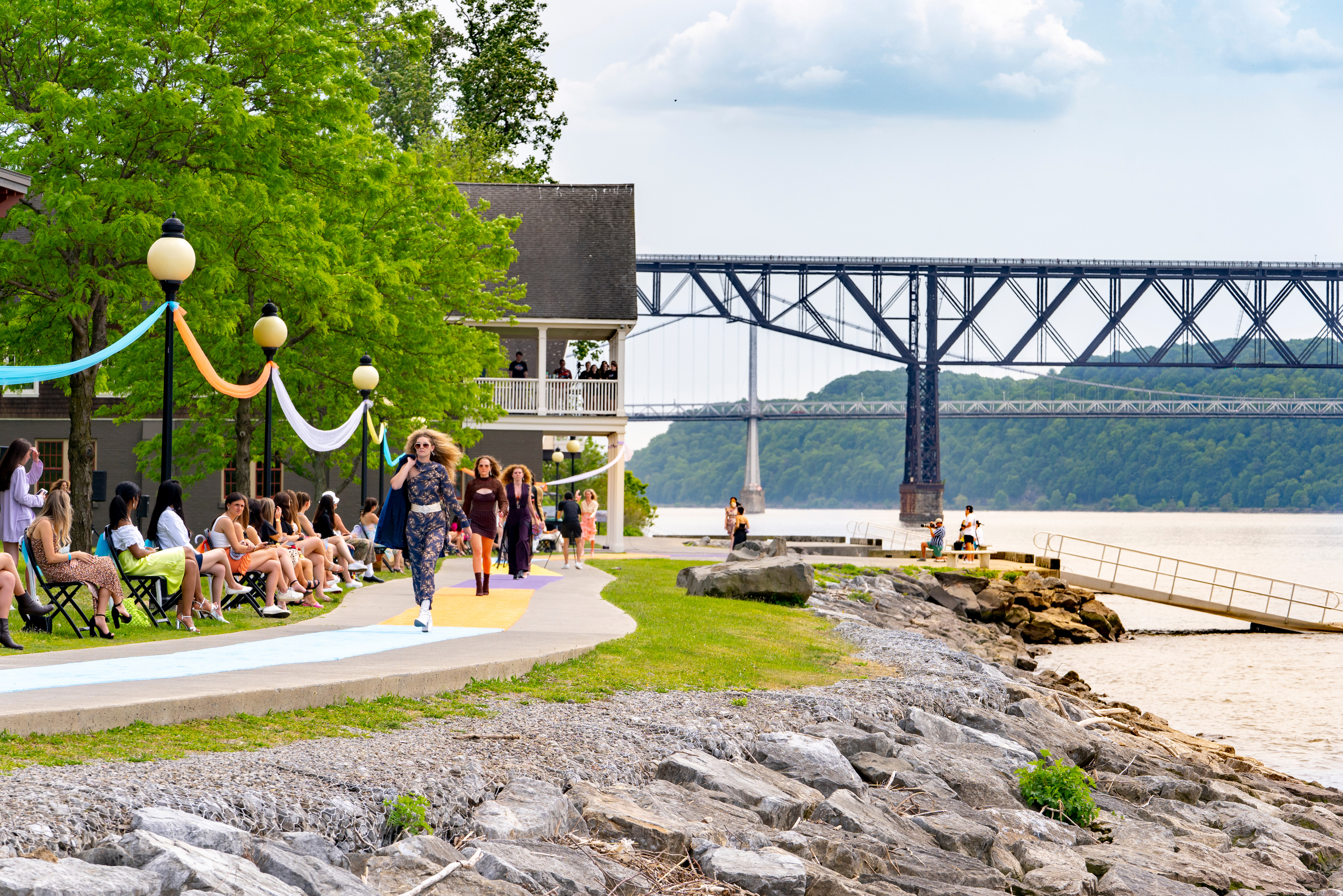
Seven Student Winners Announced
Seven Marist fashion students were recently announced as winners of the Fashion Scholarship Fund (FSF), a nonprofit organization that awards more than $1 million each year in scholarships to some of the most talented fashion students in the country, helping these students succeed in all sectors of the industry.With seven student winners, Marist was ranked among the top three overall for scholarship recipients, reinforcing the College’s excellence in fashion education. Marist is proud to have 25 projects submitted, with six design winners and one merchandising winner among the 439 submissions from 55 institutions nationally. Students must create a 14- to 20-page submission including an executive summary, research, target market information, omnichannel launch plan, six-month financial plan, inspiration boards, various fashion boards, and sketches. “I am thrilled to see seven of our Marist Fashion students excel in such a competitive landscape,” said John Bartlett, director of the Fashion Program. “Two of our winners received the Virgil Abloh ‘Post-Modern’ Scholarships, a new partnership created by the late Mr. Abloh to celebrate the work of Black students." The students who received the Virgil Abloh “Post-Modern” Scholarships are individuals who excel academically and show promise in the industry; these students, along with all winners, receive $7,500 and individual mentoring. “The mission of the Virgil Abloh ‘Post-Modern’ Scholarship Fund is to foster equity and inclusion within the fashion industry by providing scholarships to students of academic promise of Black, African-American, or African descent,” according to the FSF webpage.Recently named by Forbes magazine as one of the Best Colleges That are Shaping the Future of Fashion, Marist Fashion has a storied history in graduating students who have won FSF awards. This is a result of the dedicated faculty who act as mentors throughout the timeline of their projects. “This reiterates Marist Fashion being ranked one of the top 10 fashion schools by Forbes magazine and standing out amongst our competitors,” said Rebecca Brown, professional lecturer of fashion merchandising. The 2021 winners include: • Madi Breeman ’23 – Merchandising• Mark Bissell ’22 – Design/Product Development• Shannon Wines ’23 – Design/Product Development• Ashley Catalano – ’22 Design/Product Development• Camille McHenry ’22 – Design/Product Development – Virgil Abloh “Post-Modern” • Taliyah Coles ’22 – Design/Product Development – Virgil Abloh “Post-Modern”• Madeline McCarthy ’22 – Design/Product DevelopmentFSF Scholarship winners receive numerous networking opportunities including career fairs, mentorship, masterclasses, and more. “I am very proud of our students and our faculty mentors who support them. I believe these honors speak to the value of a fashion program within a liberal arts institution,” said Jacqueline Reich, dean of the School of Communication and the Arts.
10 Jan 2022
Edition: Winter 2022 -
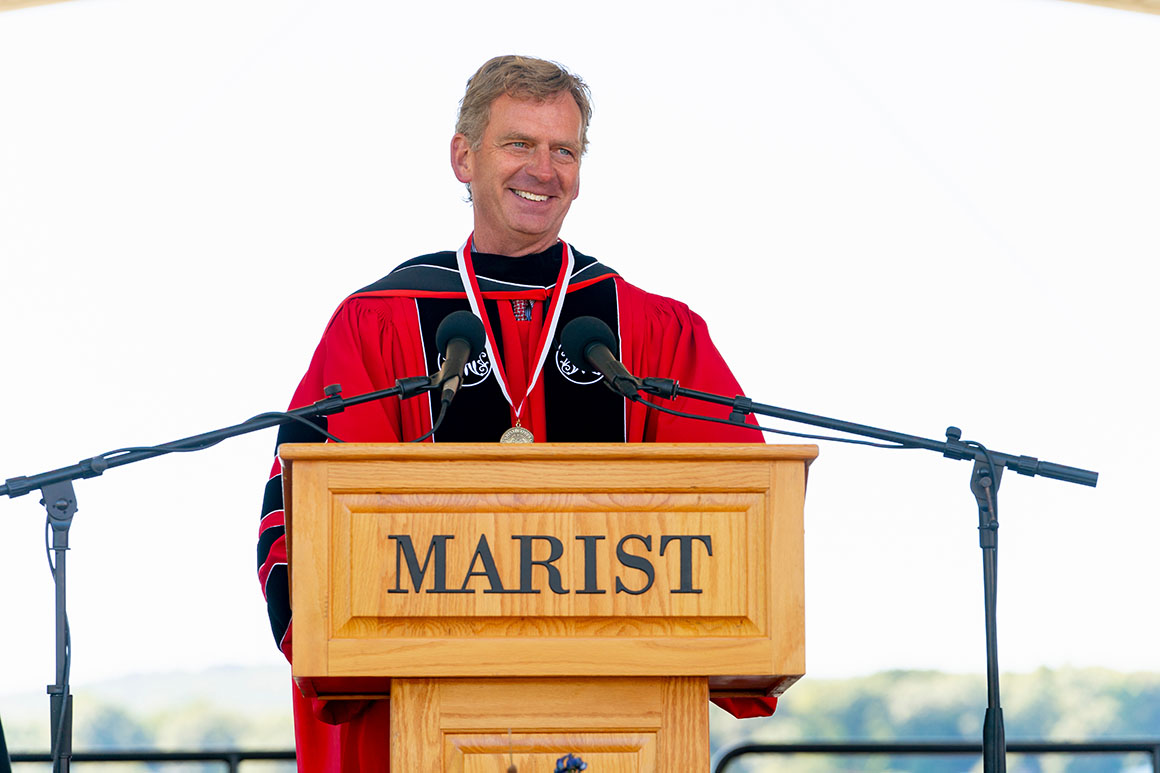
The College celebrates its past and charts a course for its future as Kevin Weinman is installed as Marist’s fifth president.
The inauguration of President Kevin Weinman as Marist College’s fifth president last September was a day of excitement and pride, as the Marist community and representatives across higher education came together to celebrate an institution rich in history and well-positioned to thrive in the years ahead.Thousands of individuals gathered on the Campus Green on Sept. 23 on a picturesque autumn day, including students, faculty, staff, alumni, local community leaders, and friends of the College. Delegates from 51 other colleges and universities across the country also made the trip to Poughkeepsie, including representatives from Amherst, Dartmouth, Harvard, Yale, Princeton, University of New Hampshire, Notre Dame, and Columbia. Many of the delegates had not visited Marist before and expressed how struck they were by the College’s beautiful campus, state-of-the-art facilities, and deep sense of community.Kevin Weinman onstage during the ceremony, prior to removing the robes associated with his earned degree and donning the Marist College presidential gown.A focal point of President Weinman’s remarks highlighted one of Marist’s most distinctive qualities: the blend of a liberal arts education and preprofessional training that is at the heart of a Marist education and is key to solving society’s most pressing problems. “As you know, there is much debate about the continuing value of the liberal arts compared to a form of education that focuses on professional training. I don’t understand this. In fact, I see no debate here at all,” he said. “The debate between the relative merits of a liberal arts education versus professional education presumes that we must choose one or the other. We don’t. Not only can they co-exist, they are mutually reinforcing. This is especially true at Marist College. Here, we aspire to and, not or.”This unique combination is what has prepared generations of Marist graduates for success and is a big part of what attracted Weinman to the College, in addition to its very student-centric culture. “You are why I am here,” he said, addressing the students directly. “You inspire me each and every day. It will be my never-ending mission to help you get the most out of your Marist experience.”Marist Student Government Association President Gabriel Borbon ’23 spoke on behalf of the student body, praising Weinman’s strong commitment to engaging with students from the moment he joined Marist as president on Oct. 4, 2021.“Dr. Weinman’s first meeting on his very first day was with the student government. That fact alone should tell you a lot about how much he values the students at Marist,” Borbon said. “In one short year, he has shown that he is dedicated to helping students develop the intellect, character, and skills required for enlightened, ethical, and productive lives. I think the Marist community can rest assured that the future of Marist College is bright and that there are even better days to come.”Dr. Carolyn “Biddy” Martin, president emerita at Amherst College, who was president of Amherst while Weinman served as Amherst’s chief financial and administrative officer, delivered the keynote address.“Kevin’s forms of expertise are so wide-ranging, certainly in finance, in computation and data-driven analysis, but he combines those with an appreciation of the imaginative arts, and the rigorous reading and analytic methods of the humanities. That is what students, and the rest of the world, need. All of that," Martin said. "In addition to his other qualities, you will find Kevin’s steadiness and his positive outlook make him an ideal person to lead. Kevin is truly a connector of fields, professions, opportunities, and people. What we see here today is evidence of that.”A ceremony that celebrated the College’s history, academic mission, and rich traditions was balanced with fun, lighthearted moments and even a bit of humor. In a video, Word on the River student host Joe Tuosto ’23 challenged Weinman to taste-test a popular student sandwich mashup from the North End café: putting a chicken sandwich on top of a grilled cheese. Weinman’s verdict after his first bite: “That is everything I’d imagine it would be.” In her keynote, Martin told a few tales on her former colleague. On the subject of Marist’s campus in Florence, Italy, she said, “I noted with interest that your new president hadn’t been here a year before he decided he needed to visit that [campus].”During the ceremony, Weinman’s son, Alex, recalled the day his father introduced him to the game of golf. “While he tried to teach me lessons about stance, grip, and follow-through, the most important lesson I learned for being on the golf course with him is this: stand far behind my dad when he’s swinging a golf club. No one is safe when Kevin Weinman takes a swing.”Weinman’s daughter, Brooke, and his wife, Beth, also played key roles in the ceremony. Brooke performed River Flows in You by Yiruma on the piano, and Beth shared reflections about her husband.“I have known Kevin for over 28 years now. Throughout this time, he has always worked hard and dedicated himself to making the lives of those around him better, but I have never seen him so excited about an opportunity to make a difference as he is here at Marist,” Beth Weinman said. “Marist, you are getting someone who does not do anything halfway, who tries to be everywhere all the time, and who cares deeply for everyone he’s around.”In acknowledging President Emeritus Dennis Murray, President Weinman noted it is Murray’s “vision and leadership for nearly 40 years that transformed Marist into the remarkable college it is today.” As a result, the institution is well positioned for continued growth and success. “Even as we celebrate the Marist here today, I am already looking ahead to our centennial in 2029,” said Weinman. “My dream includes both an epic celebration of the conclusion of a remarkable first century and a launchpad for an even more amazing second century.”He identified two key areas that will drive Marist forward into its next 100 years: innovate, and innovate relentlessly, and make Marist’s form of education available and accessible to any student who has the talent and drive to succeed here. He invited not only current students, faculty, and staff to help advance this ambitious vision, but also alumni who have been core to getting Marist to where it is today.Weinman touted past achievements of the Marist community that have made innovation part of the school’s DNA, such as its 34-year partnership with IBM, world-renowned Fashion Program, thriving branch campus in Florence, Italy, and nationally recognized online programs. “As we are innovating and improving, we are also opening our campus to an ever more diverse and talented group of students,” he added. “We must continue to focus on making a Marist education accessible to every student who can succeed here. Every student must feel a sense of belonging … I won’t rest until we achieve this important goal.”These bold priorities, coupled with a new strategic plan, which is expected to be completed in May 2023, will give alumni, students, faculty, staff, and parents countless opportunities and different ways to engage to help shape and contribute to the Marist of the future.Weinman concluded his address by noting that the Hudson River represents Marist’s values, community, and aspirations. “It supports incredible biodiversity and contributes to the vibrancy of life in the region. In this way the river mirrors the human diversity and richness of Marist College. I tell Marist students all the time … their lives are going to be complicated. Like this stunning river, the crosscurrents they face will be relentless and unpredictable. Their Marist education equips them to succeed no matter what comes their way.” The inauguration ceremony was the culmination of two days of activities that showcased the best of the Marist community. It included an open house at the Steel Plant Studios featuring the work of faculty, students, and alumni from the Art Department and Fashion Program; installations of student and alumni research and creative activity; an academic symposium showcasing Marist faculty and “snap talks” where select faculty presented research. After the inauguration, all were welcome at a reception on the Champagnat Green.To see inauguration events, including video of the full ceremony and the entire slate of campus activities, visit https://www.marist.edu/inauguration.
28 Mar 2023
Edition: Spring 2023 -
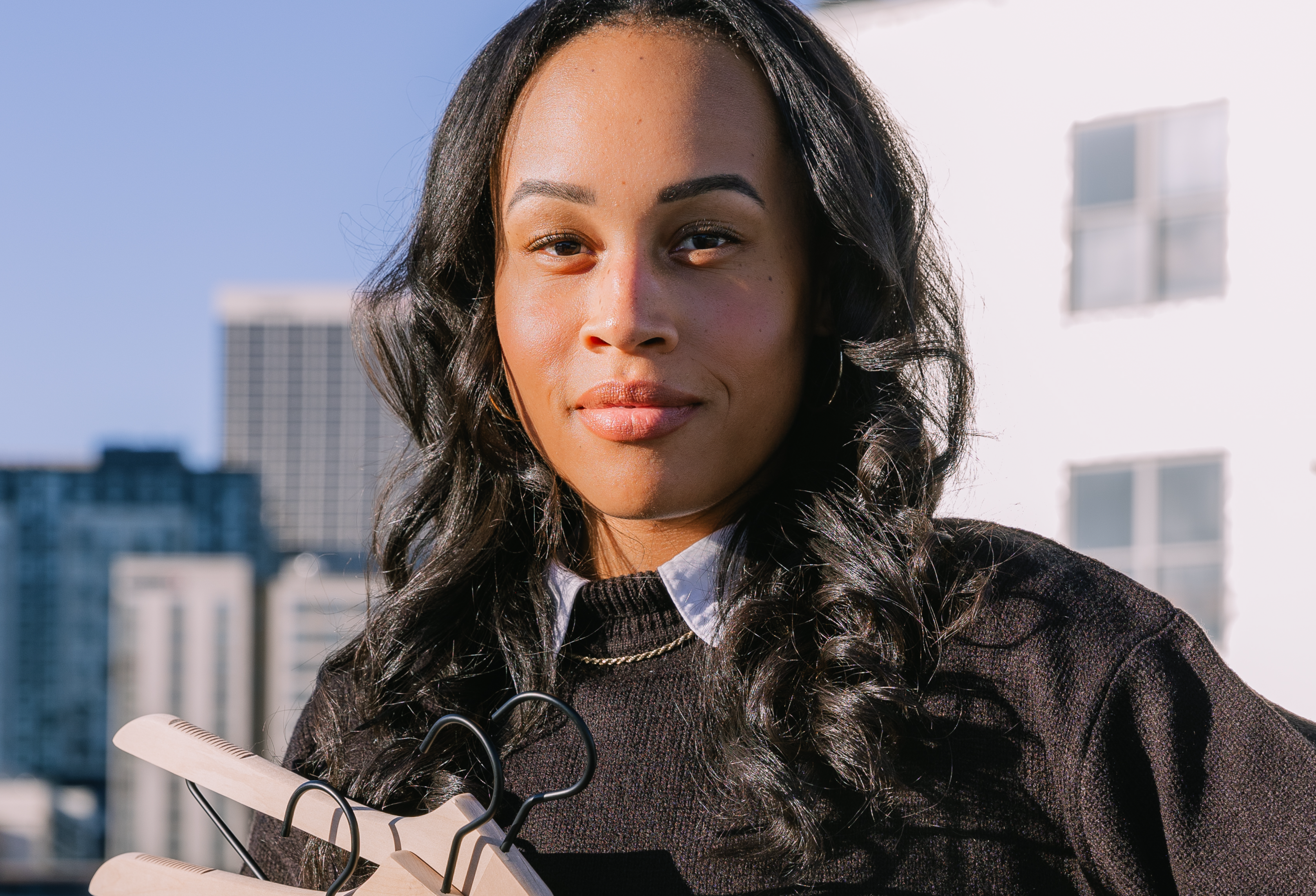
A Trailblazer on the Court and in Fashion
Former student-athlete Sydney Coffey ’16 is not just a talented basketball player; she is a visionary entrepreneur who has carved out a unique space for herself in the world of fashion. As the founder of Morlé - meaning “more legs” - a clothing brand tailored exclusively for tall women, Coffey has seamlessly blended her passion for sports with her love for fashion, creating a unique brand that resonates with both female athletes and fashion enthusiasts. “I turned my dreams into reality,” said Coffey. “With Morlé I want to revolutionize the fashion industry by advocating for tall women. Together we can reshape beauty standards and provide an unmatched experience of style and empowerment." Growing up in Hopkins, Minnesota, Coffey was immersed in basketball from an early age. Her father, Richard Coffey, played in the NBA (National Basketball Association), setting the stage for Sydney’s athletic career. She excelled on the court, leading her high school team to three state championships, and earning a scholarship to play DI basketball at Marist College. While at Marist, Coffey succeeded as a dedicated fashion merchandising major, balancing the demands of being a student-athlete while pursuing her love for fashion. She studied communications with a focus on fashion design, laying the groundwork for her future as an entrepreneur. After college, Coffey took her athletic talents overseas to play professionally, where she continued to scout the intersection of sports and fashion, noticing a specific target market – tall women like her – that was not being explored. It was during these overseas adventures in 2020 that Morlé was officially born. “I was traveling the world hearing the same stories over and over again from women my height and taller, stories about how difficult it is to find clothing we can feel good about,” said Coffey. “Now, Morlé creates a space for women to embrace their height and find a sense of community, too.” Coffey and the brand have quickly gained traction, thanks to its innovative designs. Coffey’s visions further materialized this spring when Morlé debuted at the Women’s Final Four Tip-Off Fashion Show in Cleveland, Ohio. Dedicated to tall women and athletes, the event provided Coffey with a unique networking opportunity where she was surrounded by female athletes and spoke directly with the customers she hopes to serve. “Having my first fashion show at the Final Four was incredibly meaningful,” she said. “I met so many women who didn’t know this type of fashion existed before that day. Now, they know Morlé is one of the brands that can provide them with the clothing they’re looking for.” According to Marist Women’s Basketball Coach Erin Doughty ’06 ’08M, Coffey is redefining what it means to be a business owner in the world of fashion. “Her journey from student-athlete to successful entrepreneur is a testament to her hard work, dedication, and unwavering belief in her potential,” said Doughty. “She saw a need in the fashion industry and decided to create a brand that focused on stylish clothing for tall women like herself. I am not surprised at all by the quick growth of her company, and I know it will continue to thrive under her leadership.”
Edition: Summer 2024 -
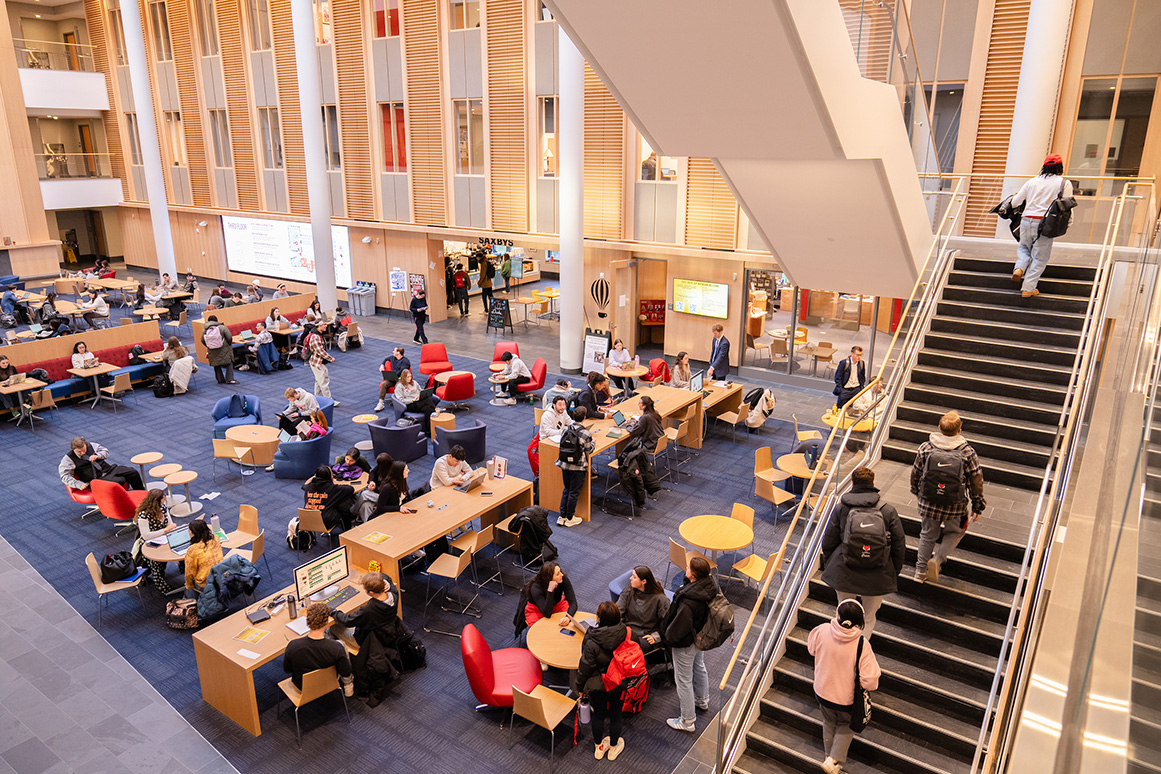
Honoring Legacies in the New Dyson Center
As the reimagined Dyson Center opened its doors for the start of classes in late August 2024, the Marist community was granted access to the building’s potential to inspire generations of students, faculty, staff, and alumni. A dynamic hub of innovation and learning, Dyson’s impressive design sets the tone for a bright future ahead. But beyond the impressive architecture and state-of-the-art learning spaces, Dyson also tells the story of the enduring power of philanthropy at Marist. Made possible in part by the generosity of many donors, including the Dyson Foundation under the leadership of Chairman Robert R. Dyson and President and CEO Andrea L. Reynolds, the new facility showcases numerous named spaces – from a premier lecture hall, faculty offices, classrooms, to a new mock courtroom and teaching methods lab. These spaces, named by committed donors, inspire current students while evoking the legacies of community members who have left their mark on Marist, and whose new space ensures their legacy endures. EDWARD TAYLOR COOMBS CLASSROOM Gift from the Edward Taylor Coombs Foundation With sweeping views of the Hudson River, the Edward Taylor Coombs Classroom on Dyson’s fourth floor commemorates Eddie Coombs, a Marist lacrosse player whose life was tragically cut short in 2011. This space, a gift from the Edward Taylor Coombs Foundation, celebrates Eddie’s legacy not just as an athlete but as a devoted student and community leader. Founded by Eddie’s family, the foundation continues his legacy by supporting scholarships and youth programs that empower young student-athletes to reach their potential both on and off the field. Known for his kindness, work ethic, and sportsmanship, Eddie made a lasting impression on his teammates and coaches, inspiring the Marist community to honor his memory. Each year, Marist presents the No. 34 jersey—a number Eddie wore—to a senior lacrosse player who exemplifies Eddie’s spirit and dedication, keeping his influence alive among new generations of athletes. “The classroom is absolutely breathtaking. said Forrestine Coombs, Edward’s mother It maintains his academic legacy on campus, not just as an athlete, but as a student-athlete.” The Coombs family has supported Marist for more than a decade, with this classroom serving as a physical reminder of Eddie’s enduring impact on campus. Through their foundation, Eddie’s legacy lives on in this new space, inspiring Marist students to embrace the values he embodied. O’SHEA LECTURE HALL Gift from Life Trustee John P. O’Shea and Family The O’Shea Lecture Hall represents the O’Shea family’s deep-rooted connection to Marist and their lasting commitment to advancing the academic experience. The O’Sheas have been dedicated supporters of Marist for decades, contributing not only financially but also through their active engagement in various initiatives. This lecture hall is a tribute to their legacy of generosity and educational advocacy, serving as a dynamic space where students gather to learn, collaborate, and engage in critical discourse. The contributions of John O’Shea and his late wife Nancy reflect their vision of Marist as a community of excellence and opportunity. From supporting student programs to participating in campus developments, the O’Shea family has played a crucial role in helping shape Marist’s mission and growth. “This lecture hall embodies the O’Shea family’s dedication to fostering an environment where students can thrive, learn, and create lasting connections,” said Chris DelGiorno ’88, Vice President for Advancement at Marist. WILLIAM “BILL” AUSTIN COLLABORATIVE ROOM Gift from Wayne Jr. ’80 and Marisa Schmidt Named in honor of beloved Marist rowing coach Bill Austin, the William Austin Collaborative Room reflects Coach Austin’s legacy of teamwork, mentorship, and dedication. Known for guiding the Marist rowing team to numerous victories, Coach Austin left an indelible mark on the Marist community, influencing generations of athletes with his passion for the sport and his commitment to character development. The Schmidt family’s decision to name a space after Coach Austin is a tribute to his profound impact on Marist athletes. The room stands as a collaborative space where students can work together, fostering the sense of unity and mutual support that Coach Austin championed throughout his career. The Schmidt’s meaningful pledge also included the naming of a classroom in honor of Wayne’s father, Wayne F. Schmidt Sr. JEROME AND TINA PICKETT MOCK COURTROOM Gift from Jerome ’98/’22M and Tina Pickett Aspace designed for immersive legal studies, the Jerome and Tina Pickett Mock Courtroom brings a new professional setting to the Marist campus, preparing students for careers in law and criminal justice. Alumnus Jerome Pickett has a distinguished career in security and law enforcement, bringing a wealth of real-world experience that enhances this academic space. The courtroom serves as a training ground for students, equipping them with hands-on experience in trial procedures, critical thinking, and advocacy. Through their gift, the Picketts aim to inspire future leaders and provide Marist students with a platform to hone their skills in a realistic environment, underscoring the values of justice, ethics, and service to others "Having a space where students can actively engage in courtroom simulations brings their education to life and prepares them for the demands of their future careers," said Pickett. FULL LIST OF DYSON’S NAMED SPACES Dean’s Suite in the School of Social and Behavioral Sciences, a gift from the Class of 1968 in honor of their 55th Reunion Edward Taylor Coombs Classroom, a gift from the Edward Taylor Coombs Foundation Evelyn M. Davies Teaching Methods Lab, a gift from the Evelyn M. Davies Charitable Trust, Mark V. Dennis, Marist Trustee School of Management Faculty Office, in memory of Thomas G. Crotty ’81, a gift from the Crotty Family School of Management Faculty Office, a gift from Timothy ’69 and Mary Ann Keneally School of Management Faculty Office, a gift from Alyssa ’89 and Charles Moeder Jerome and Tina Pickett Mock Courtroom, a gift from Jerome ’98/’22M and Tina Pickett O’Shea Lecture Hall, a gift from Life Trustee John P. O’Shea and Family Pamela J. Harper, PhD Classroom, a gift from her colleagues, students, friends, and family Pike Rooftop Terrace, a gift from Pike Construction Services Investment Center, a gift from the Jeannette F. Schlobach Charitable Trust, Mark V. Dennis, CPA, Trustee School of Management Advisory Board Café, a gift from an anonymous donor Ulrich Room, a gift from the Dr. Edwin A. Ulrich Charitable Trust Wayne F. Schmidt Sr. Classroom, a gift from Wayne Jr. ’80 and Marisa Schmidt William “Bill” Austin Collaborative Room, a gift from Wayne Jr. ’80 and Marisa Schmidt Interested in learning more about named spaces on the Marist campus? Contact Vice President of Advancement, Chris DelGiorno ’88 at chris.degiorno@marist.edu
